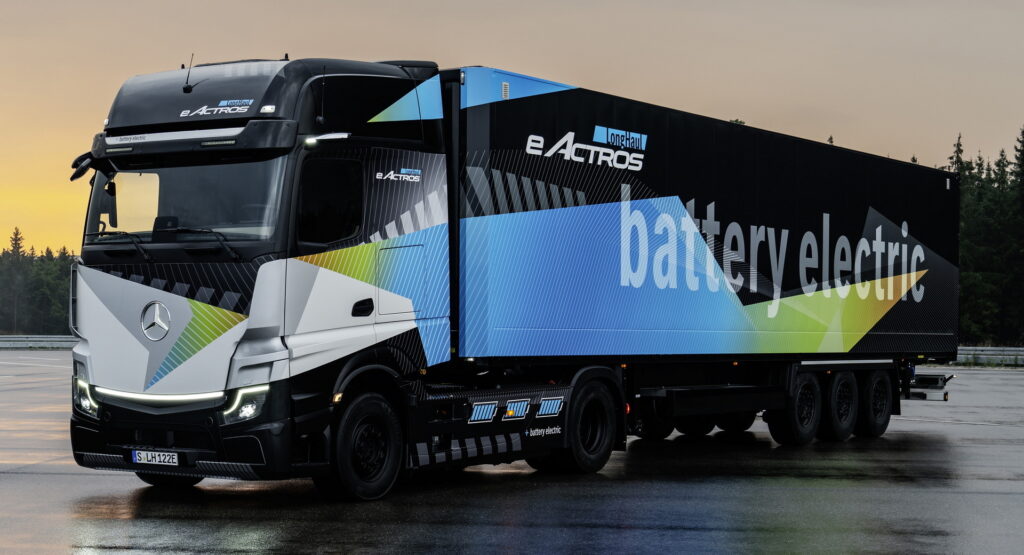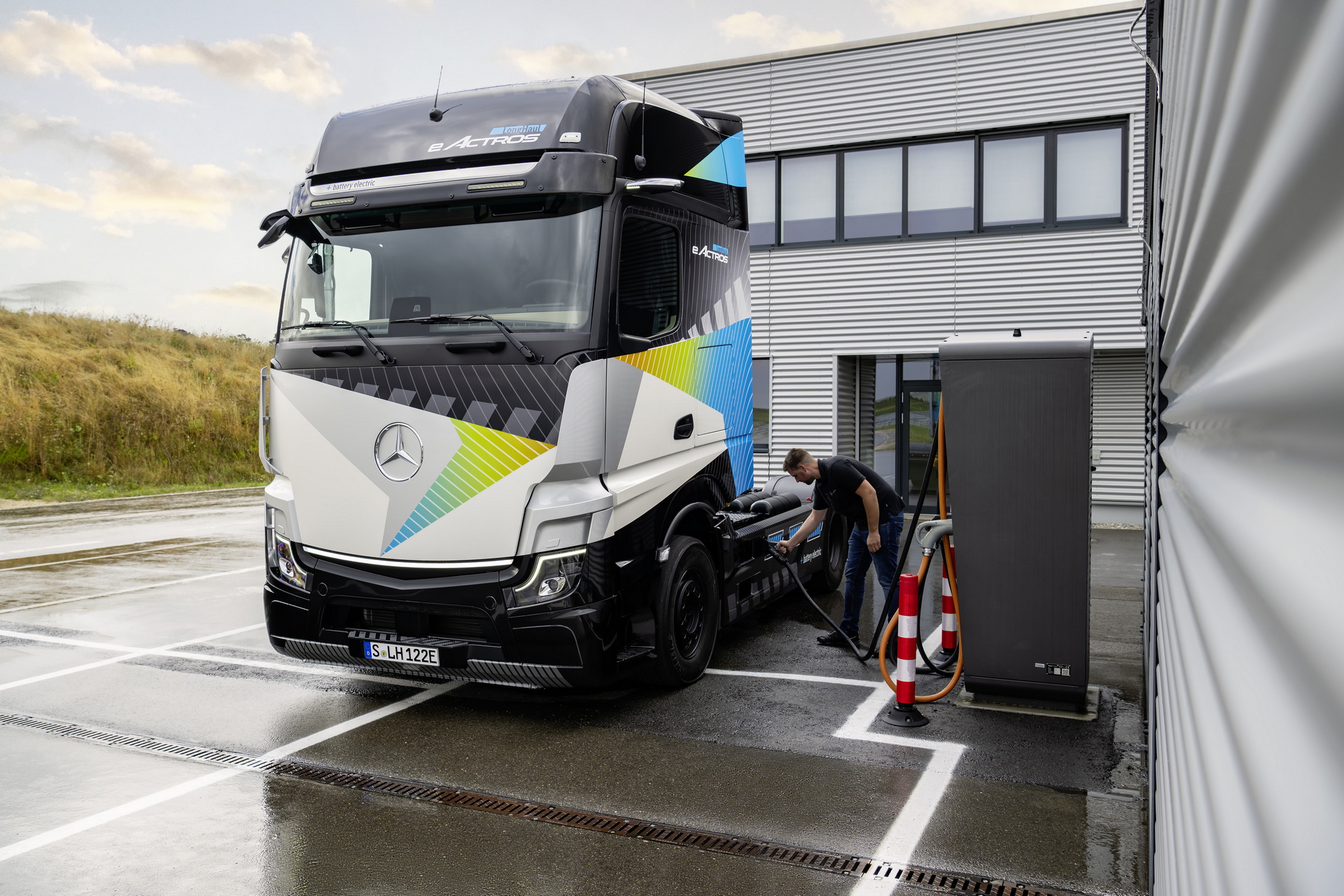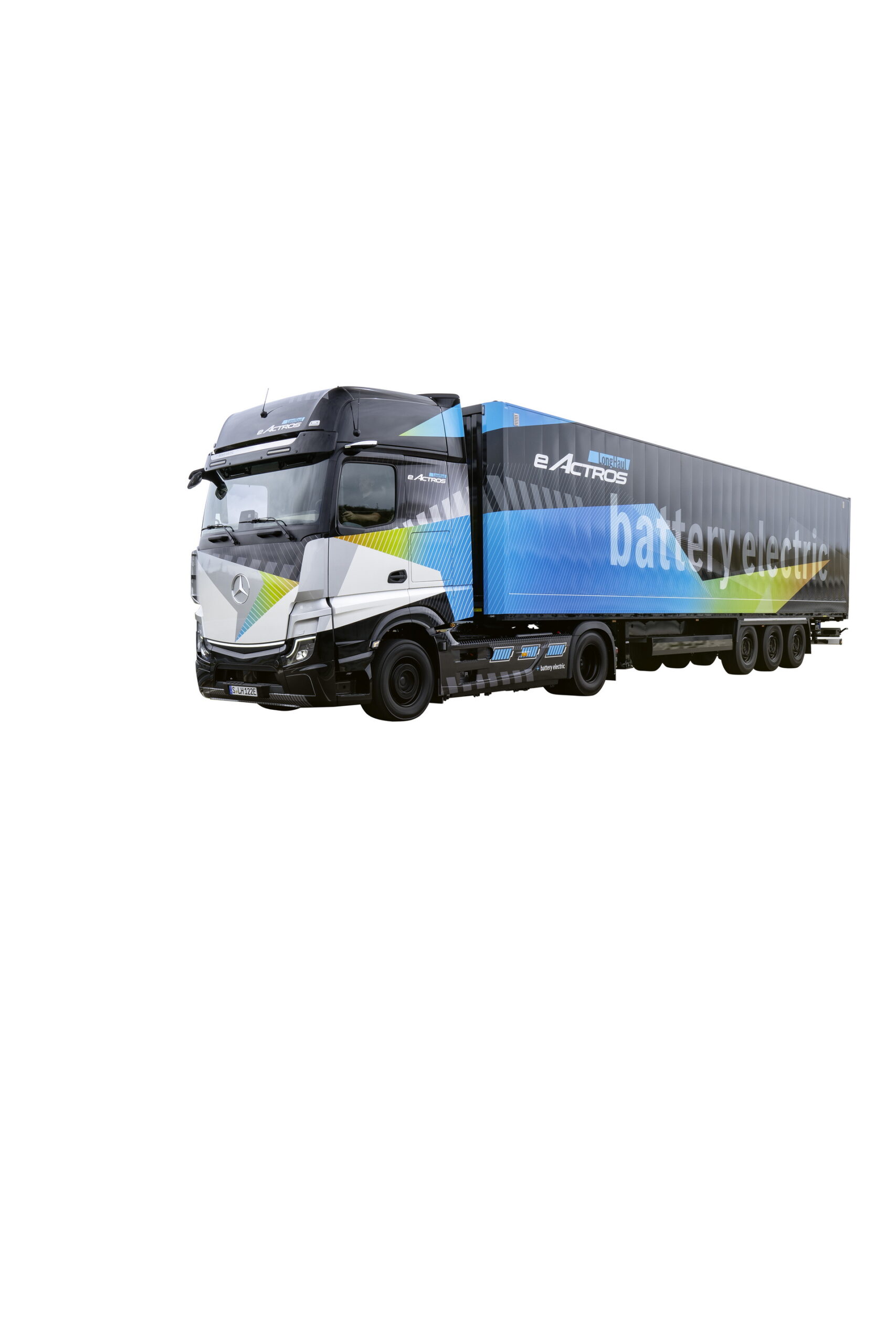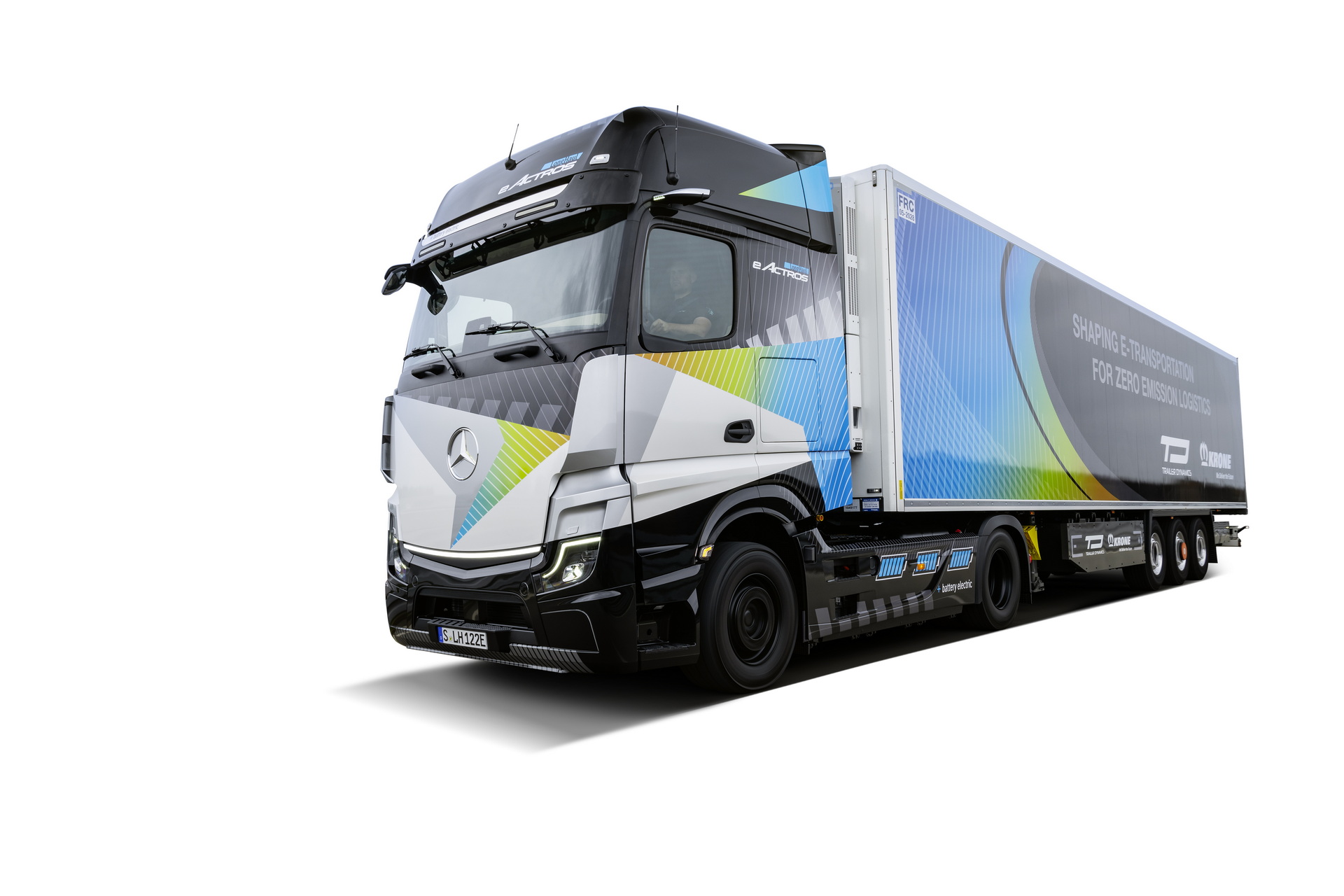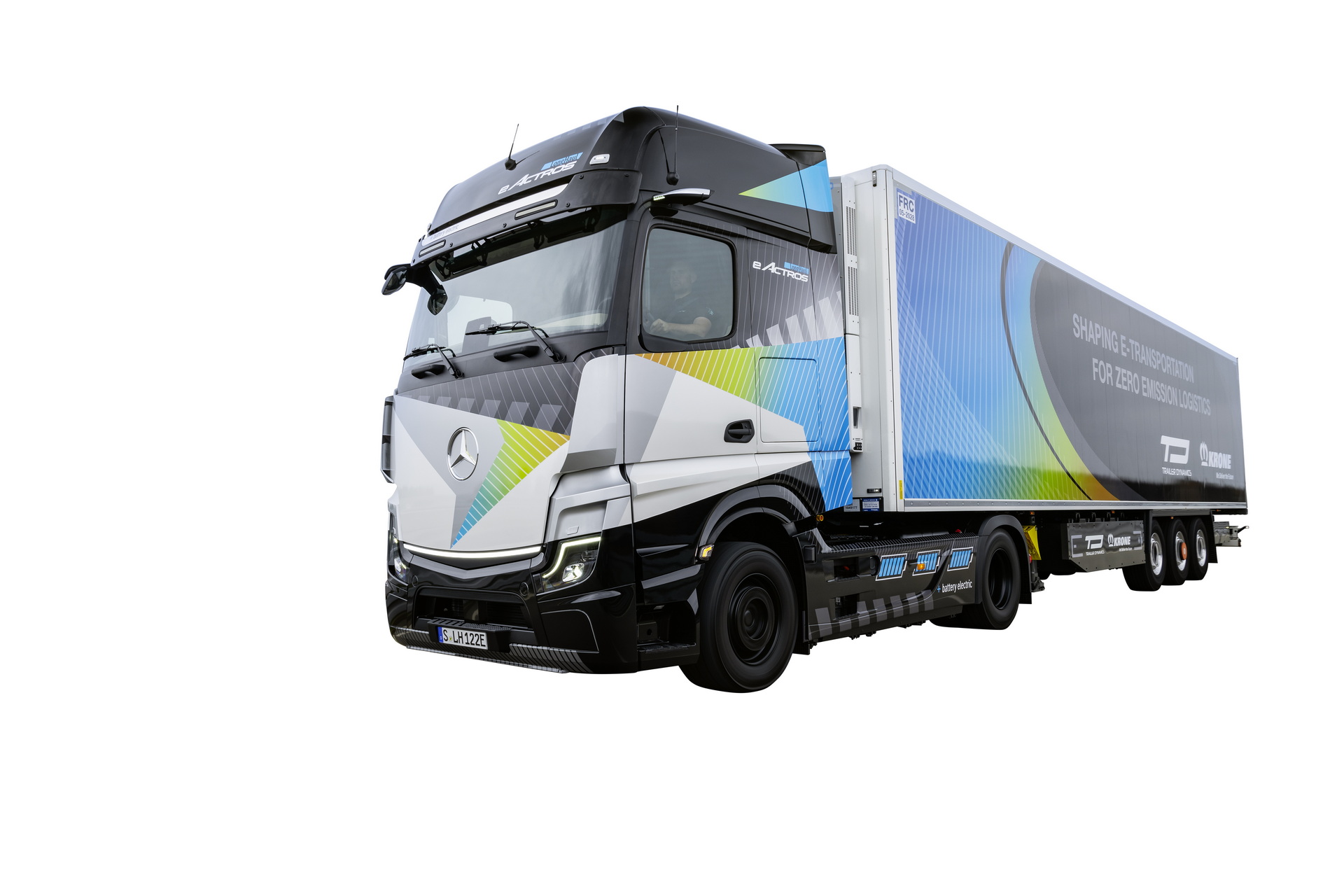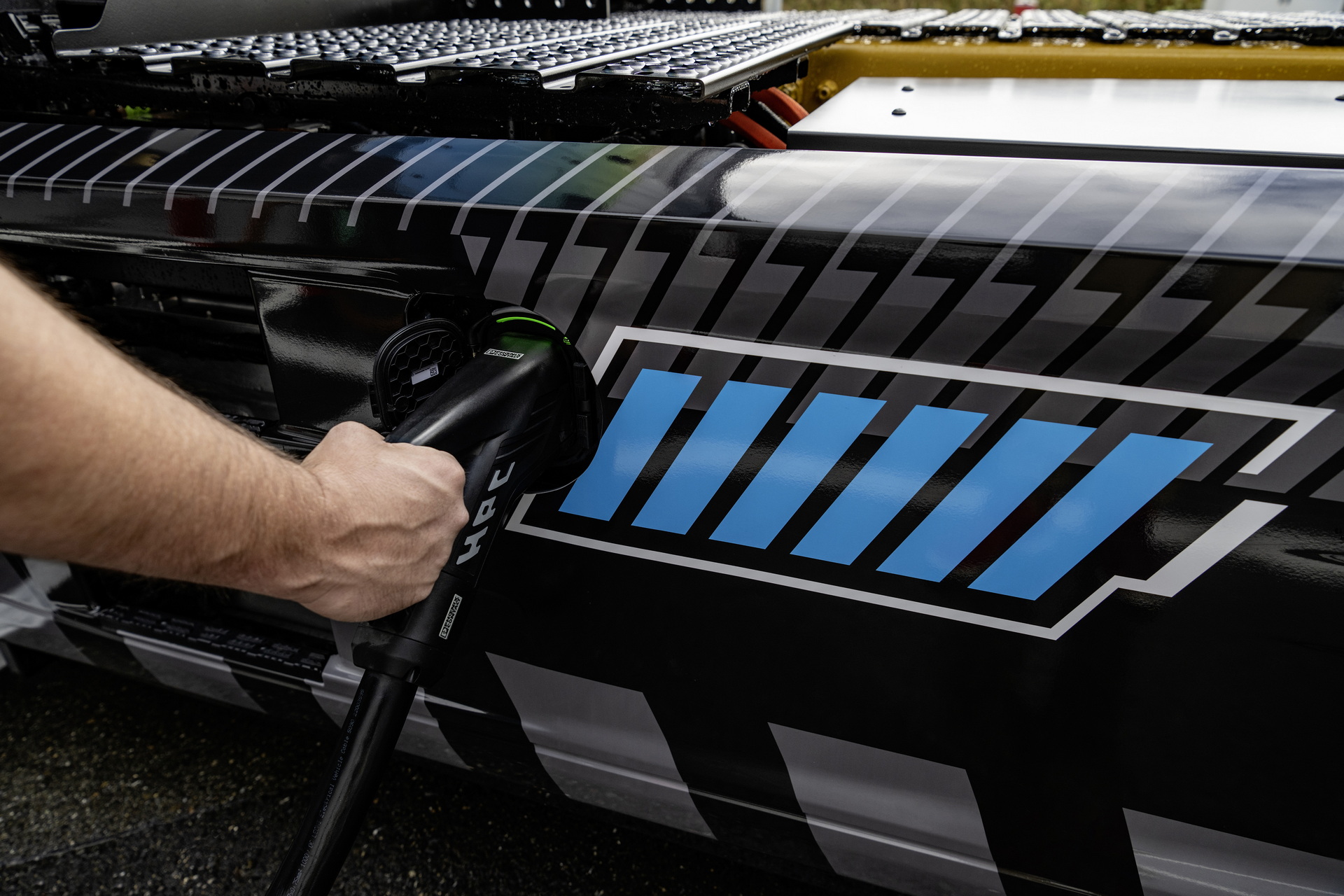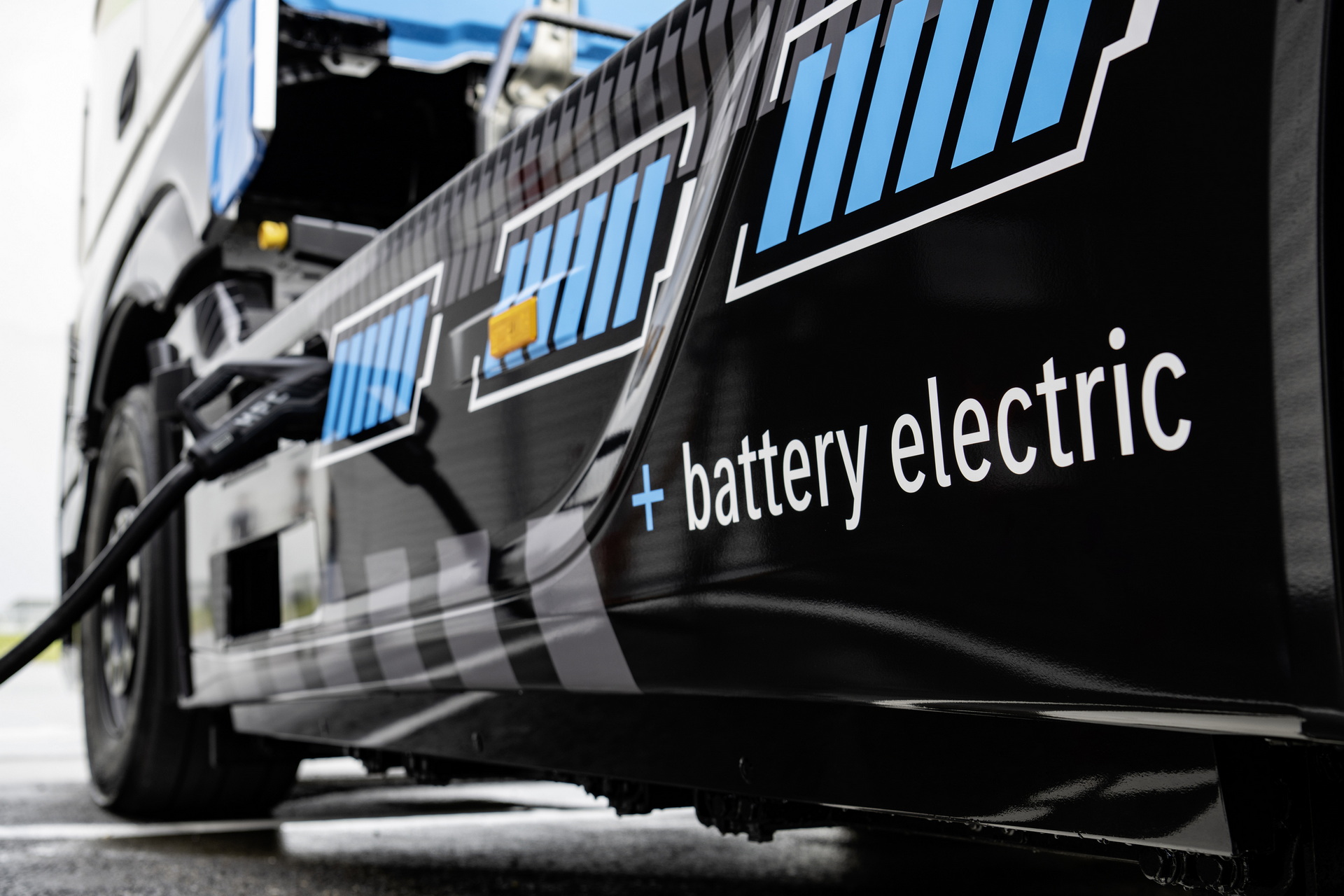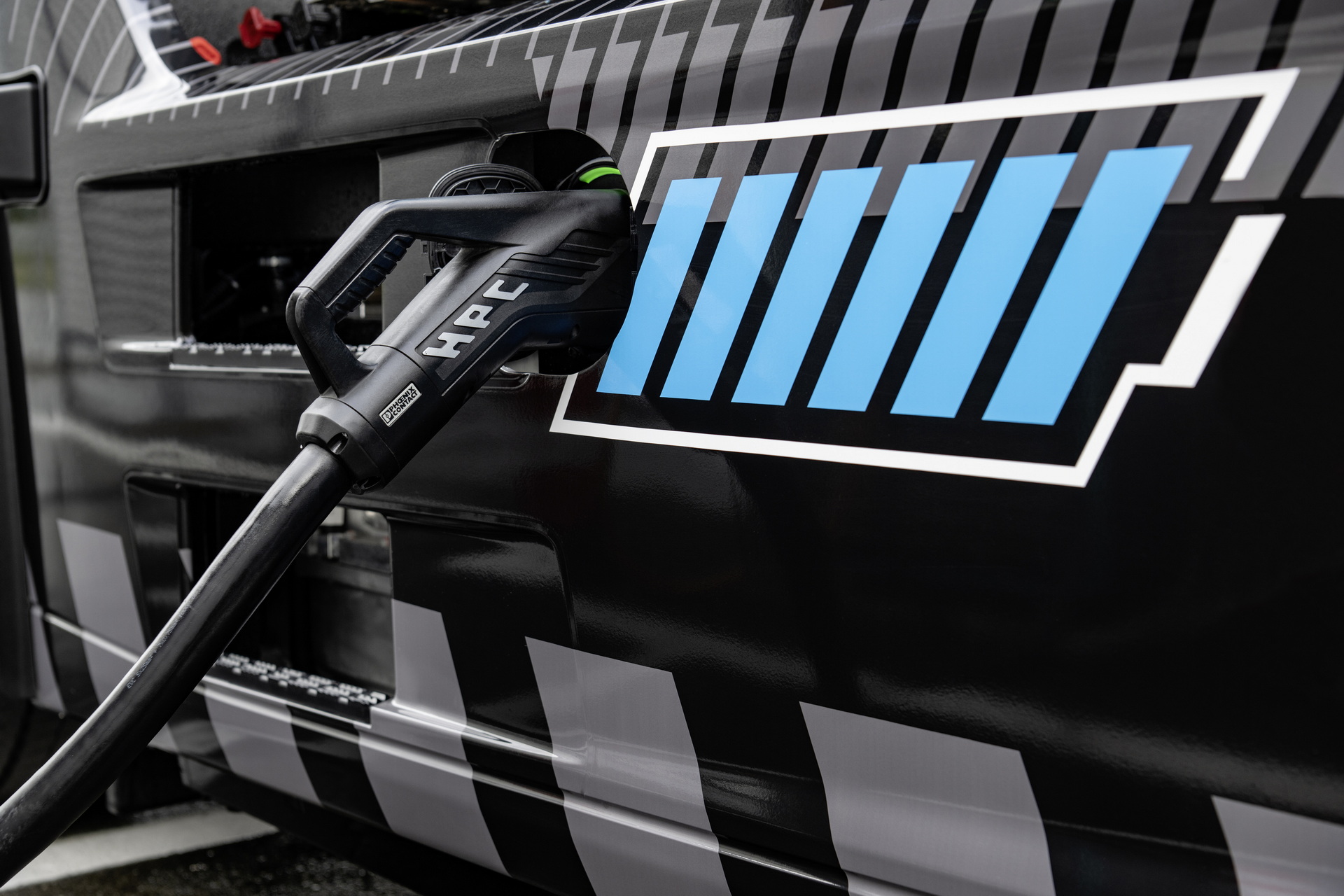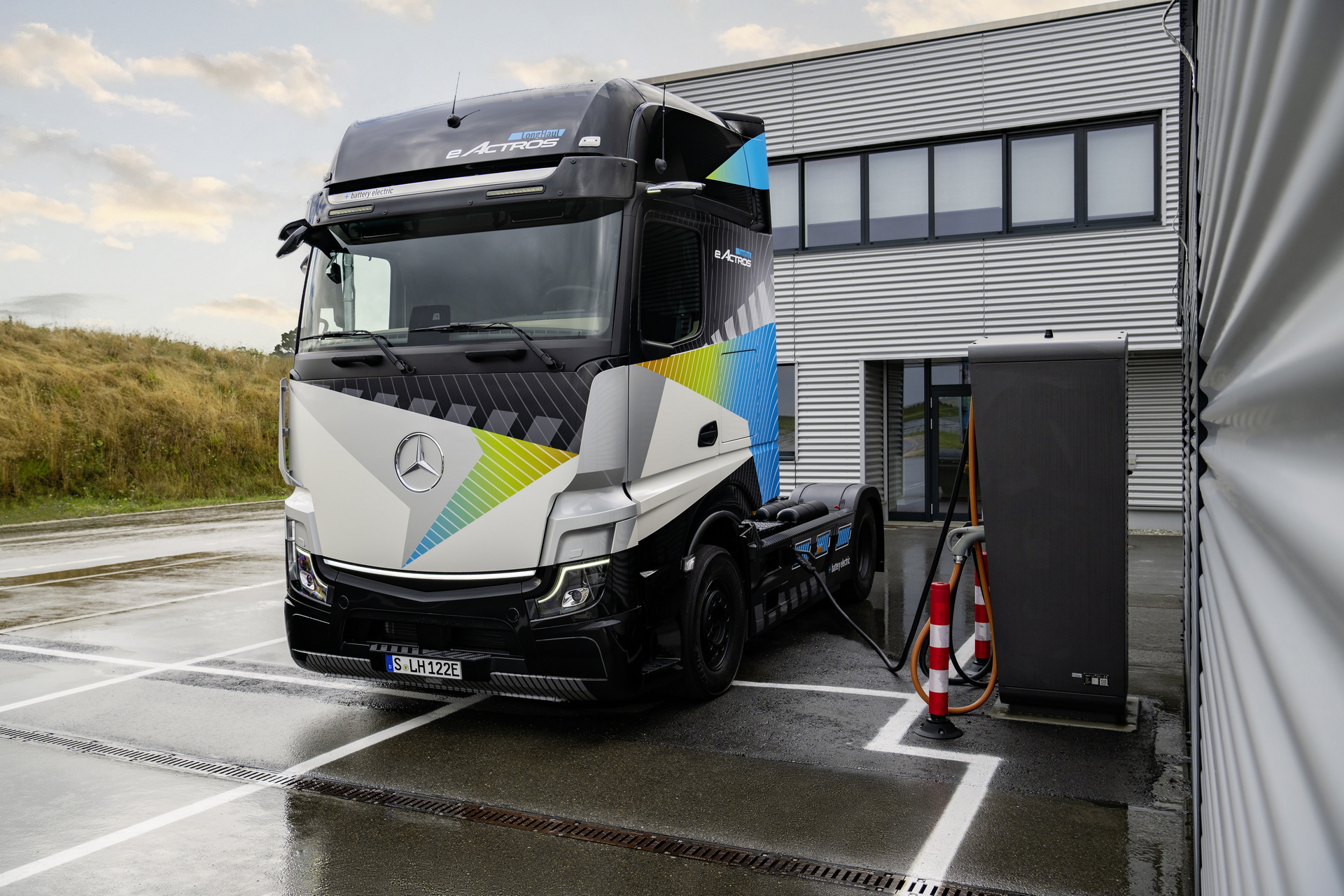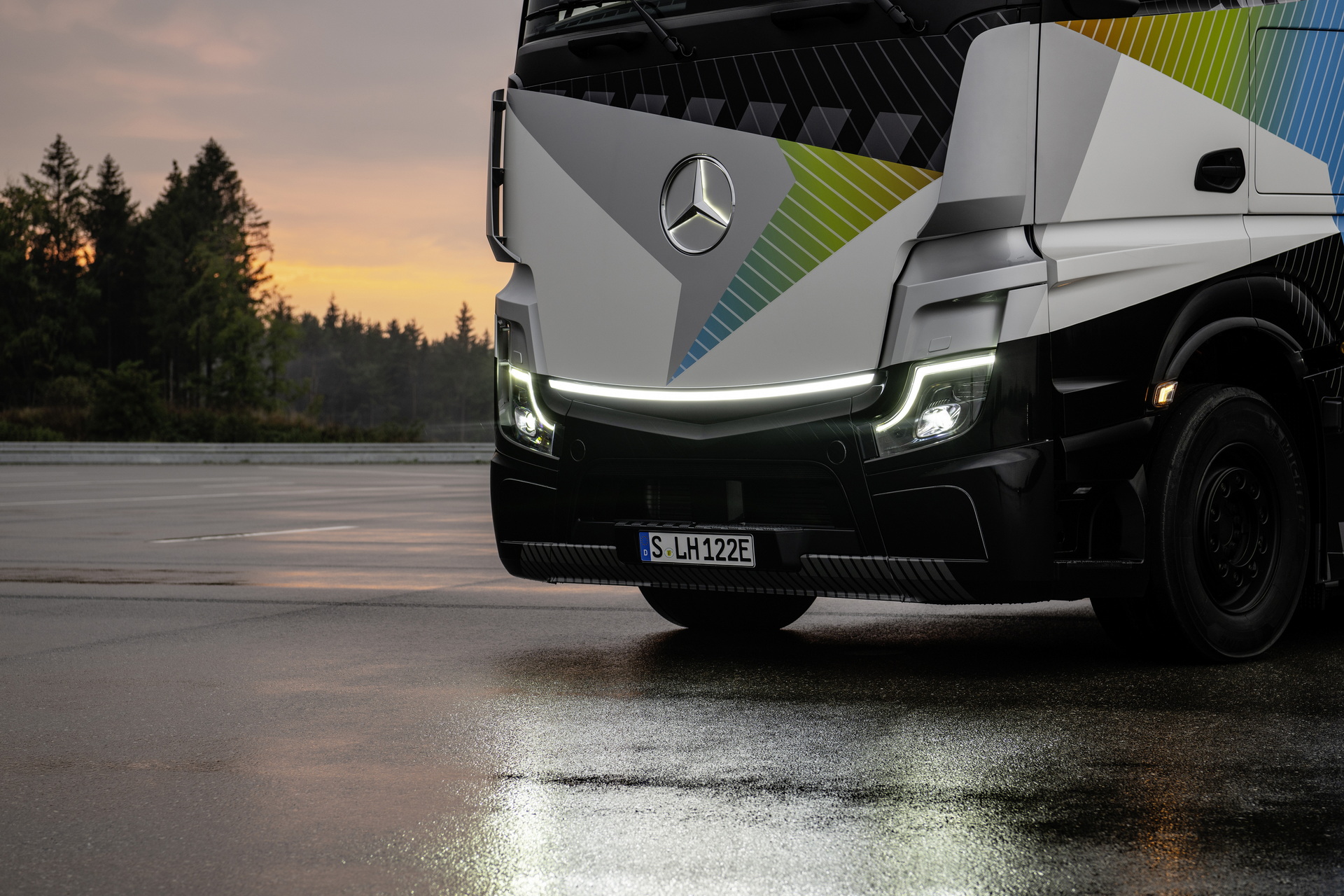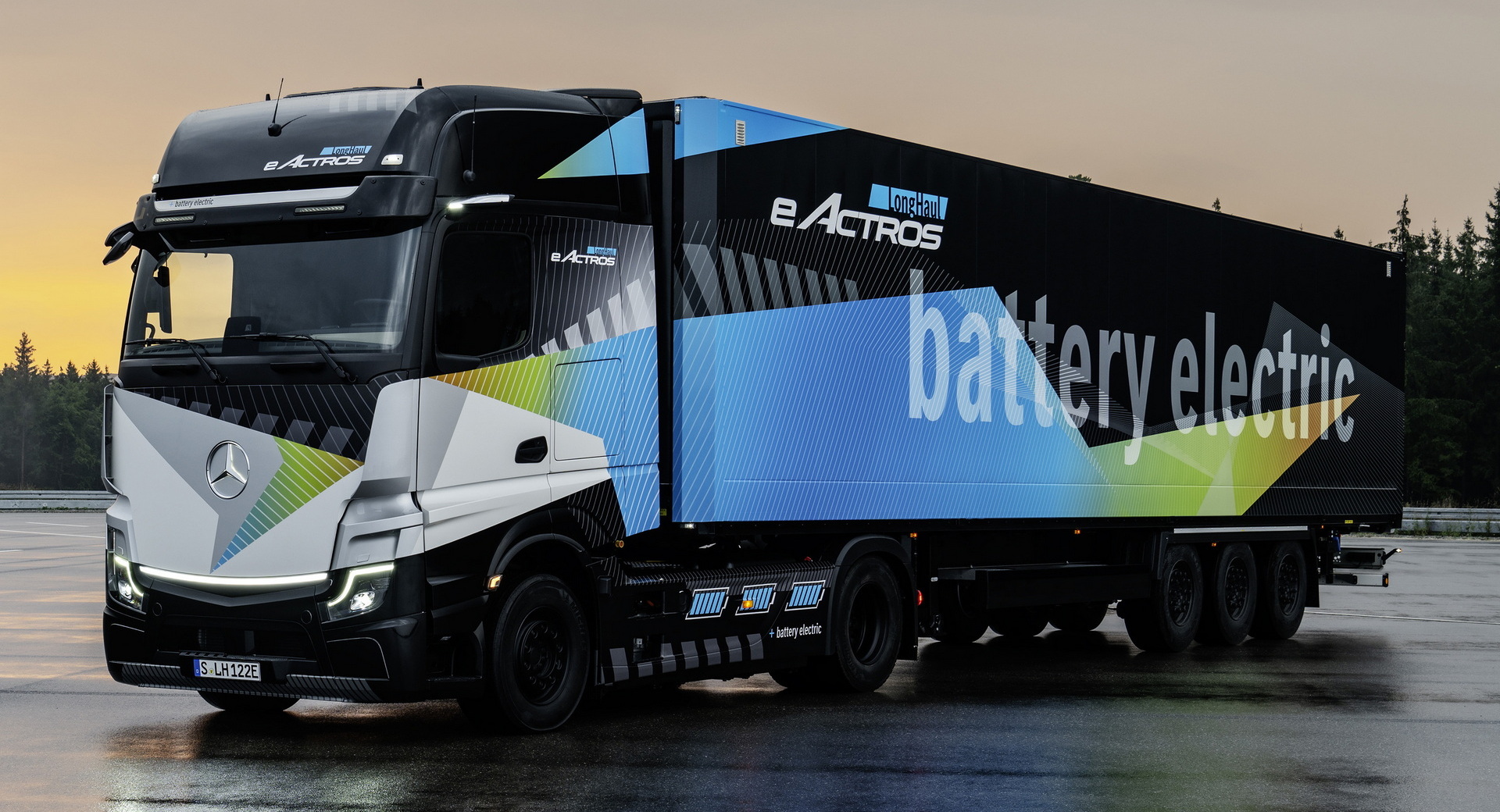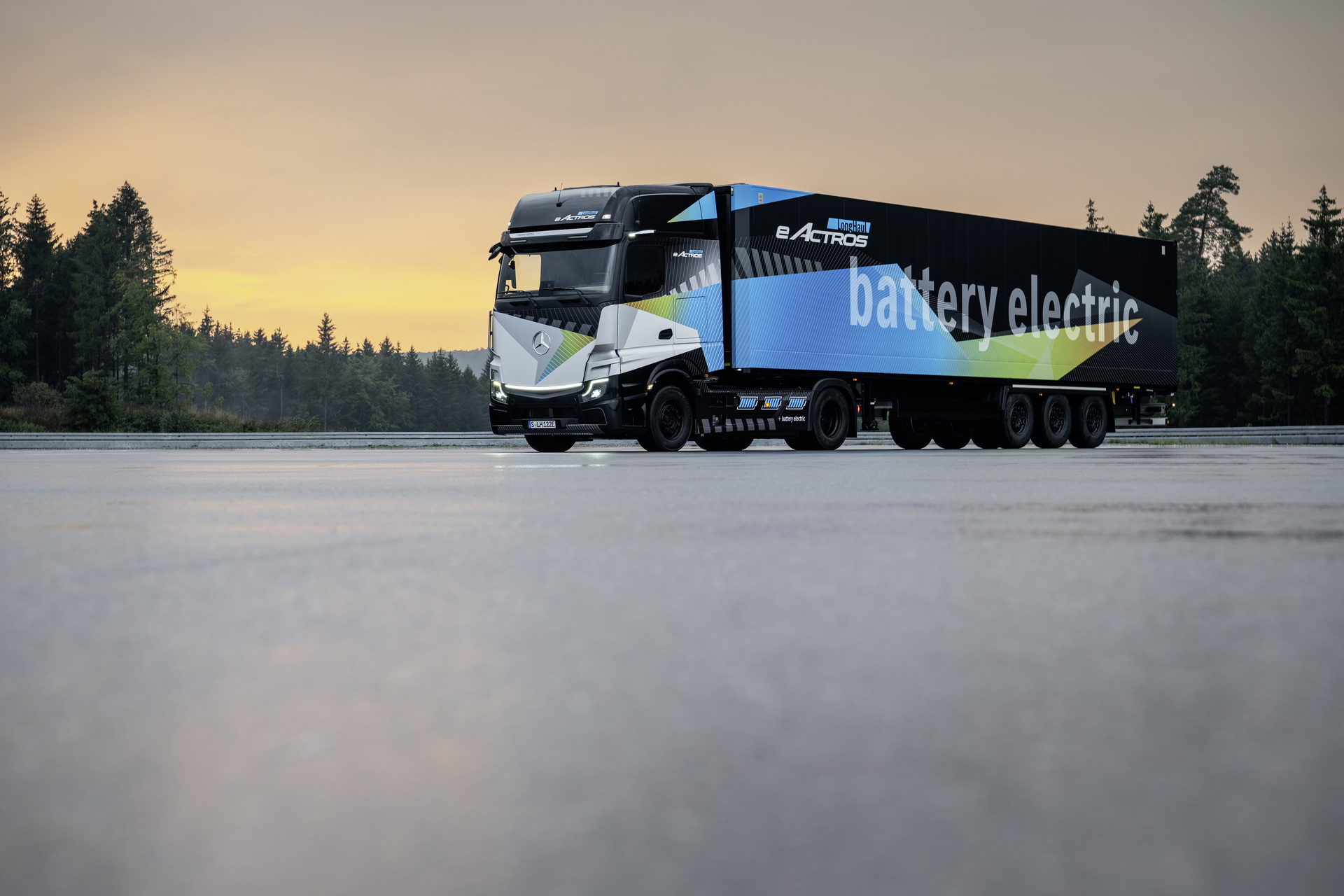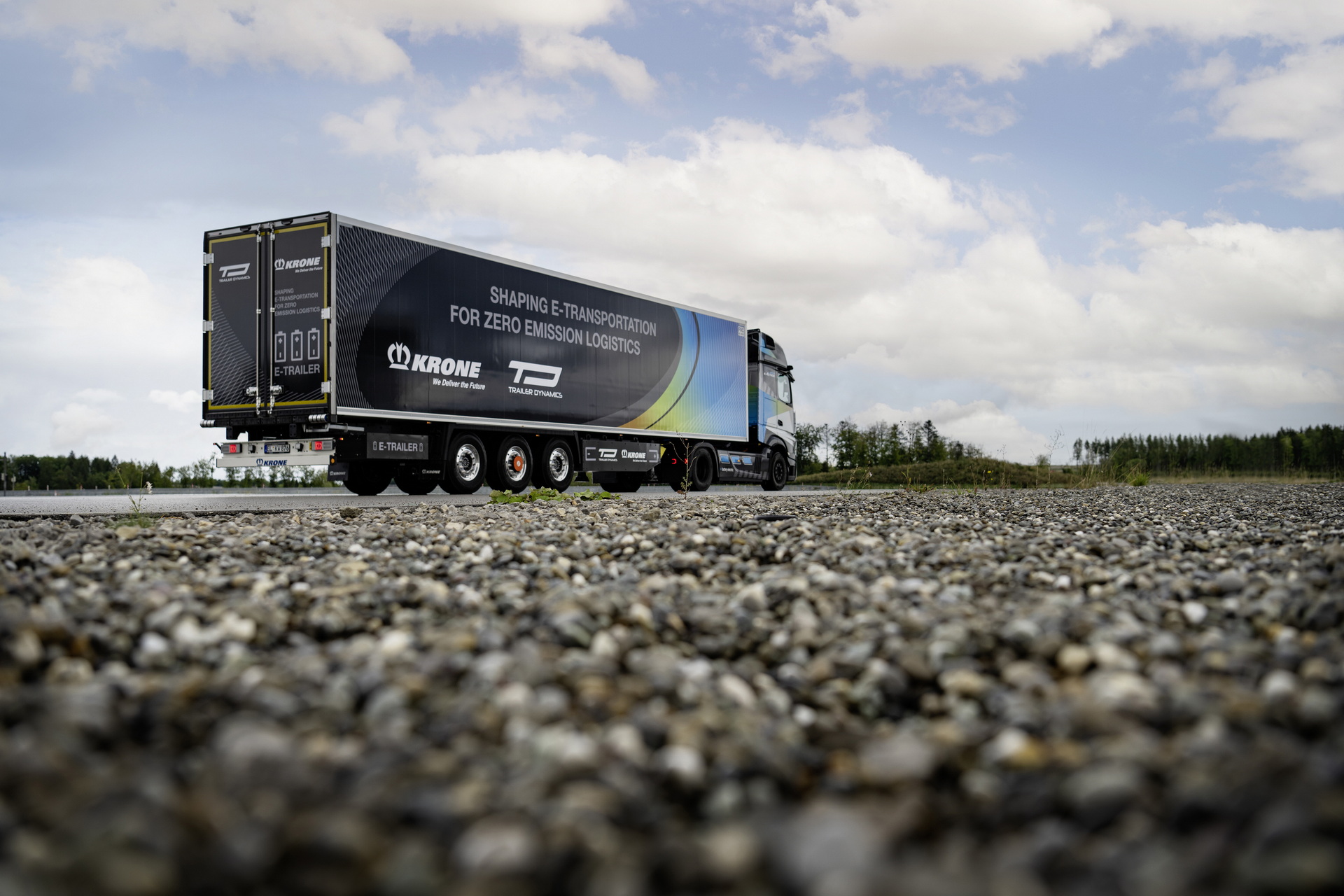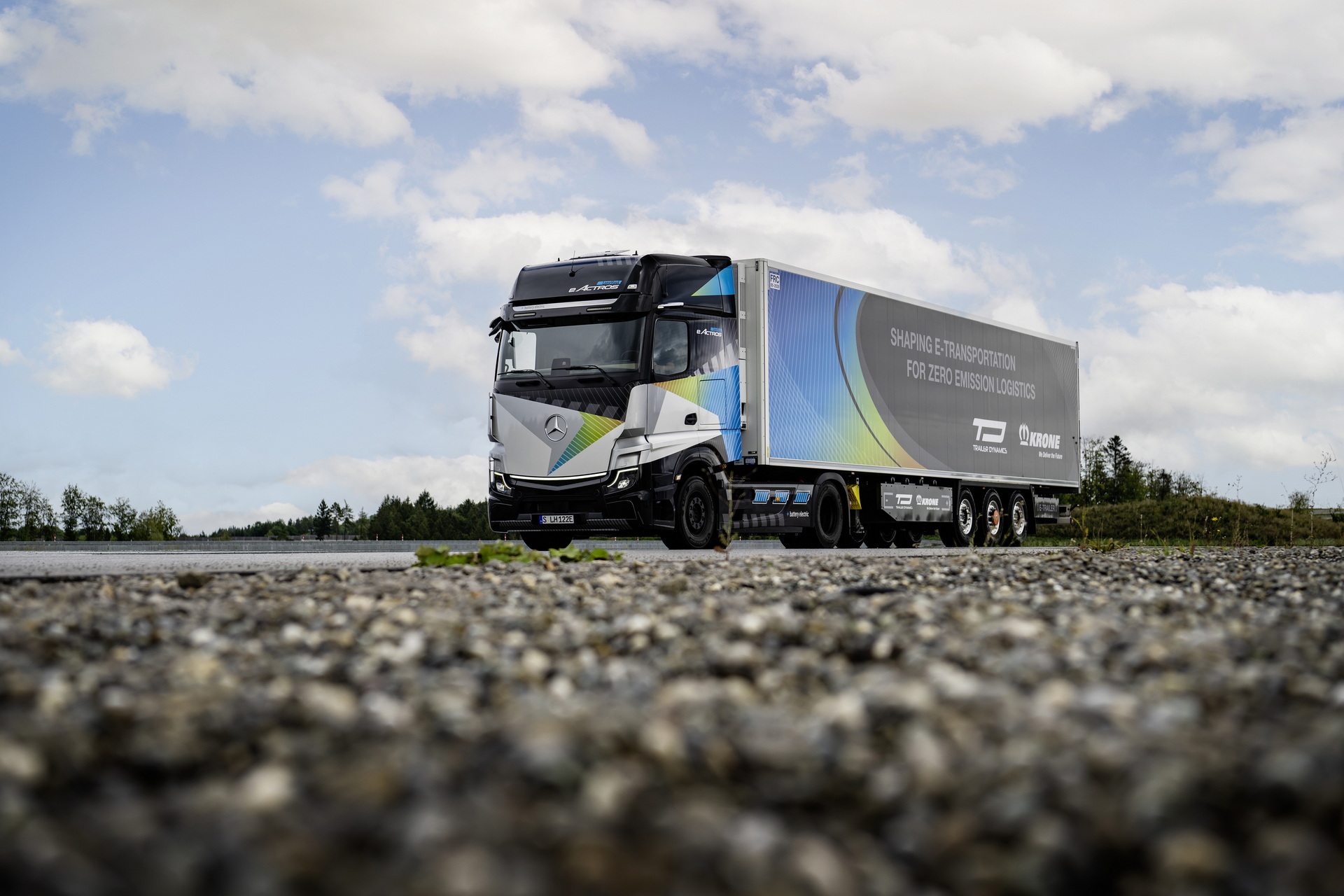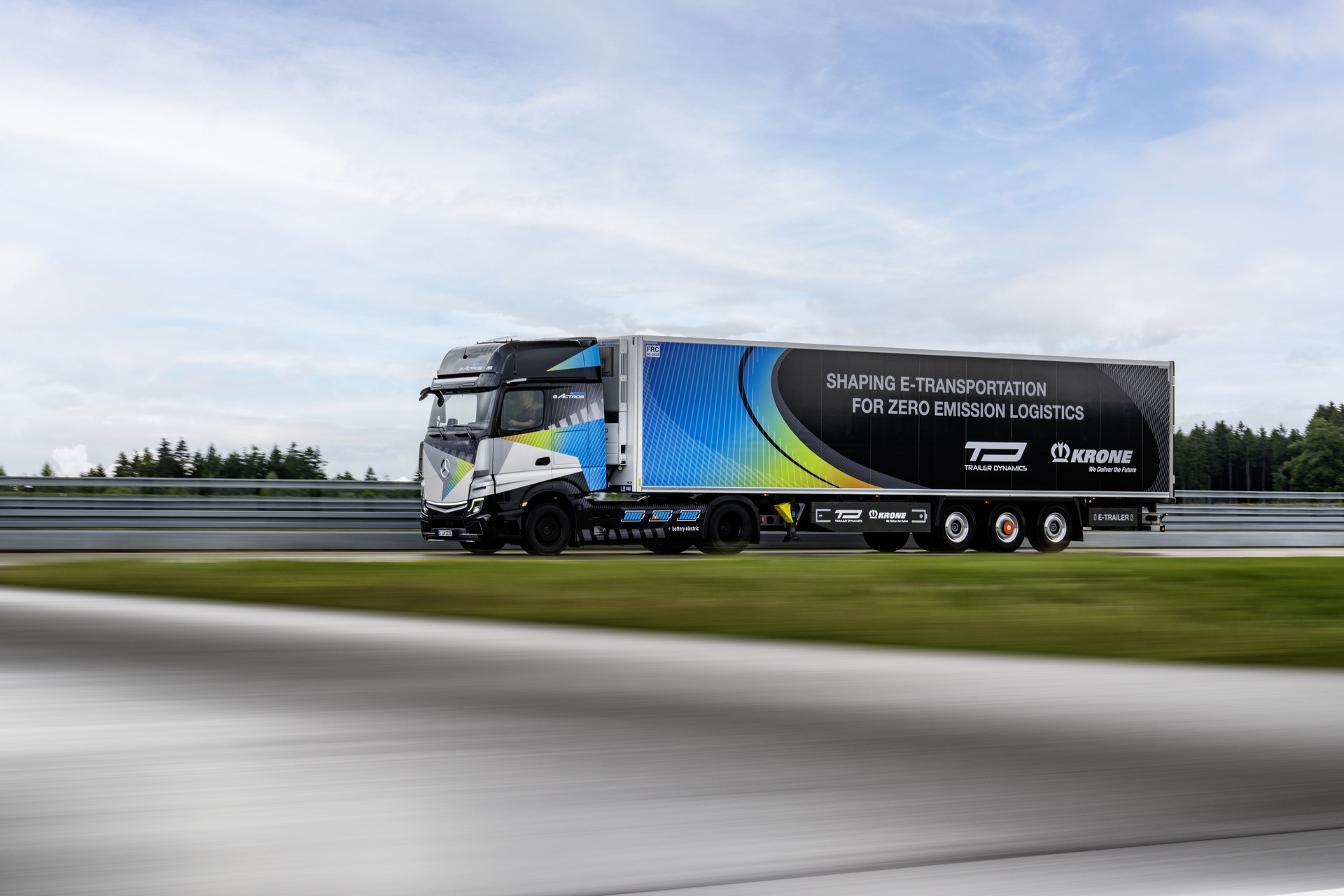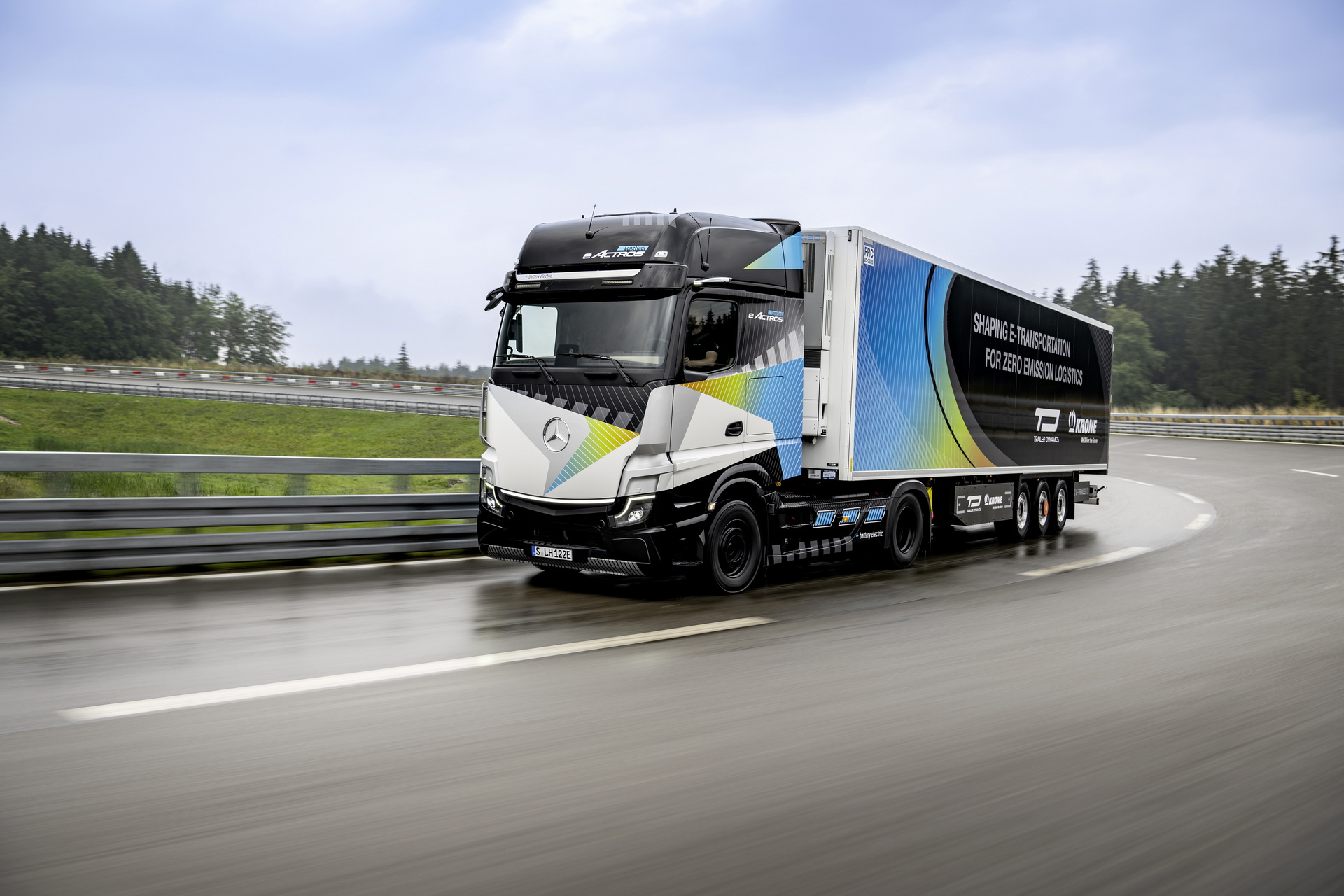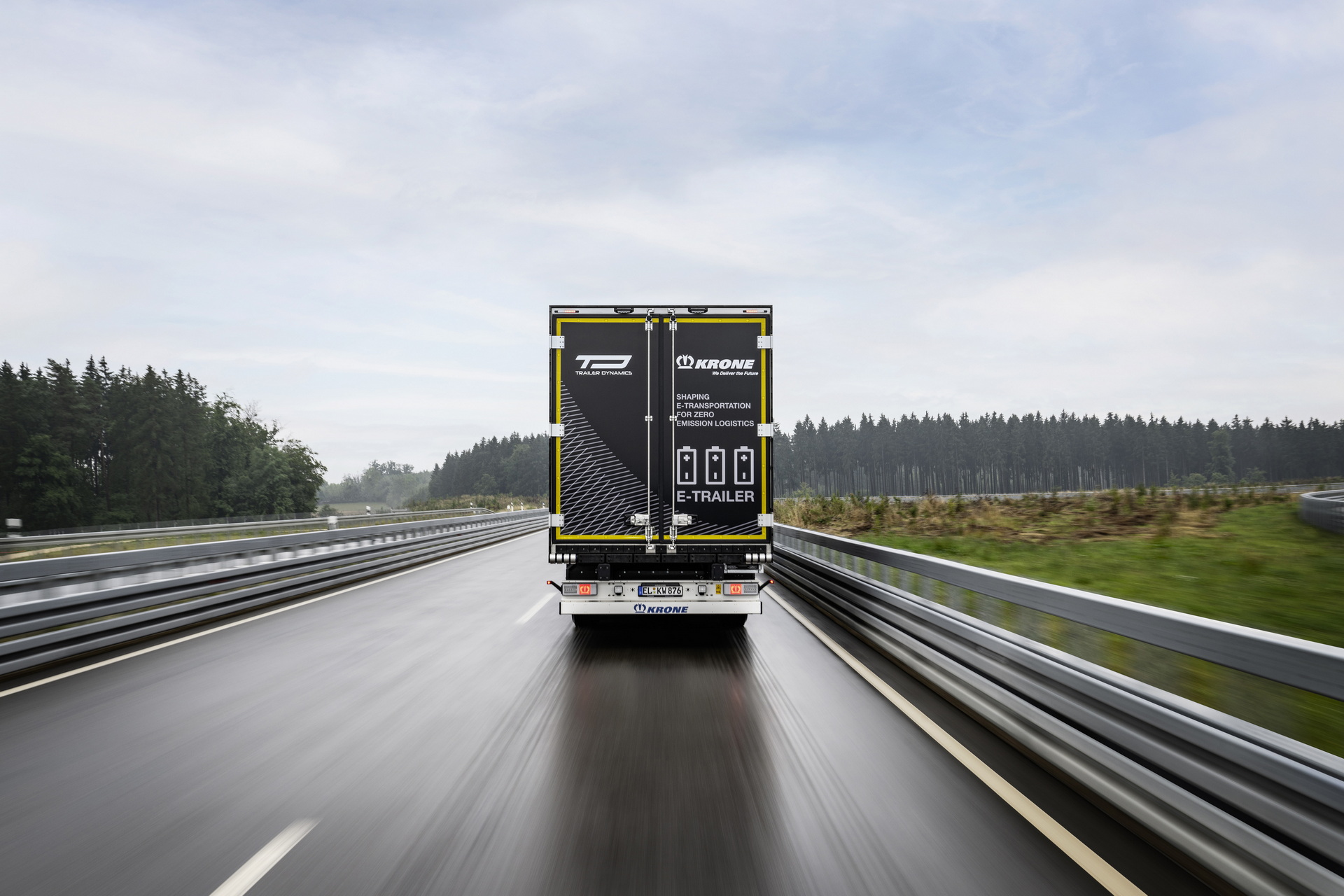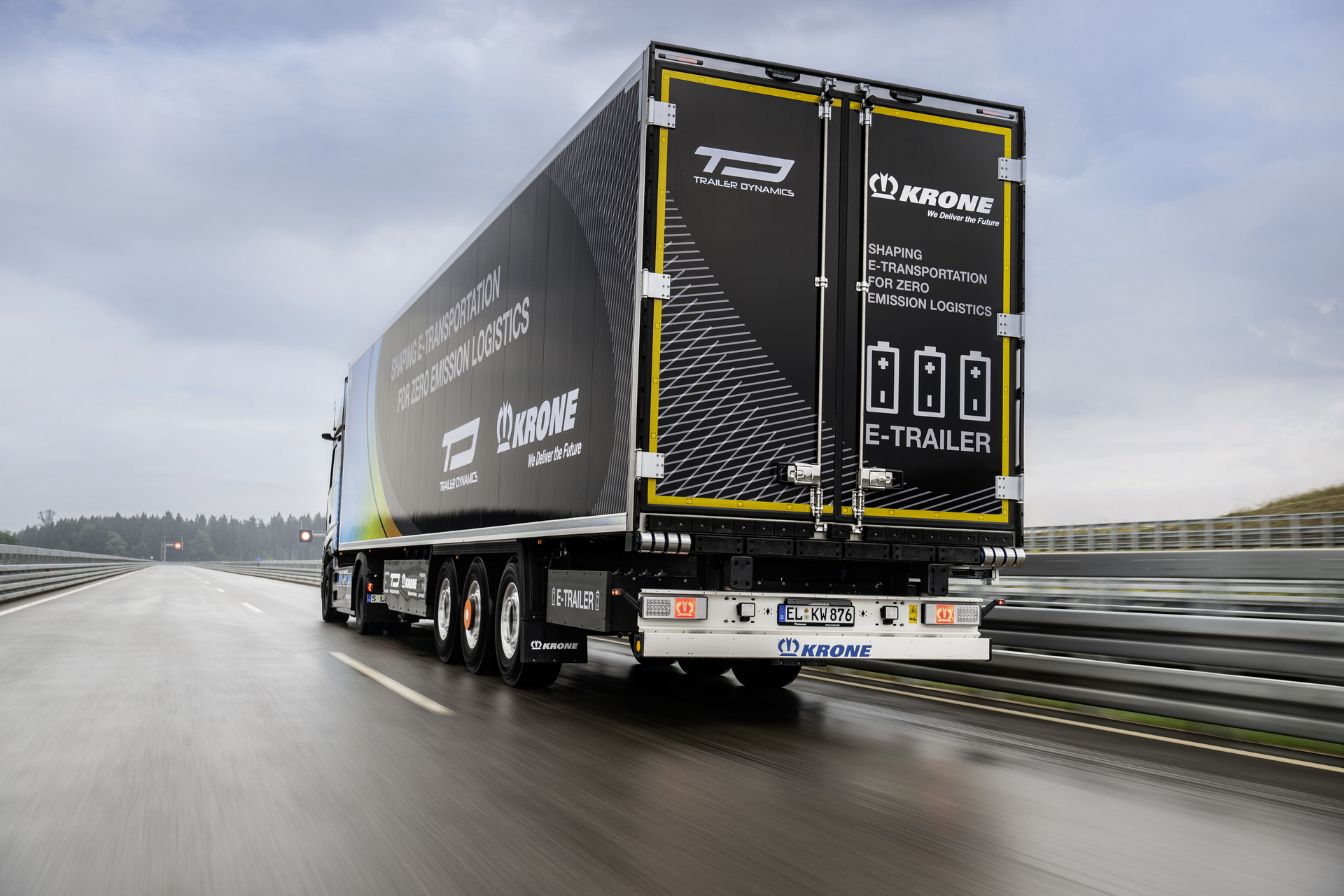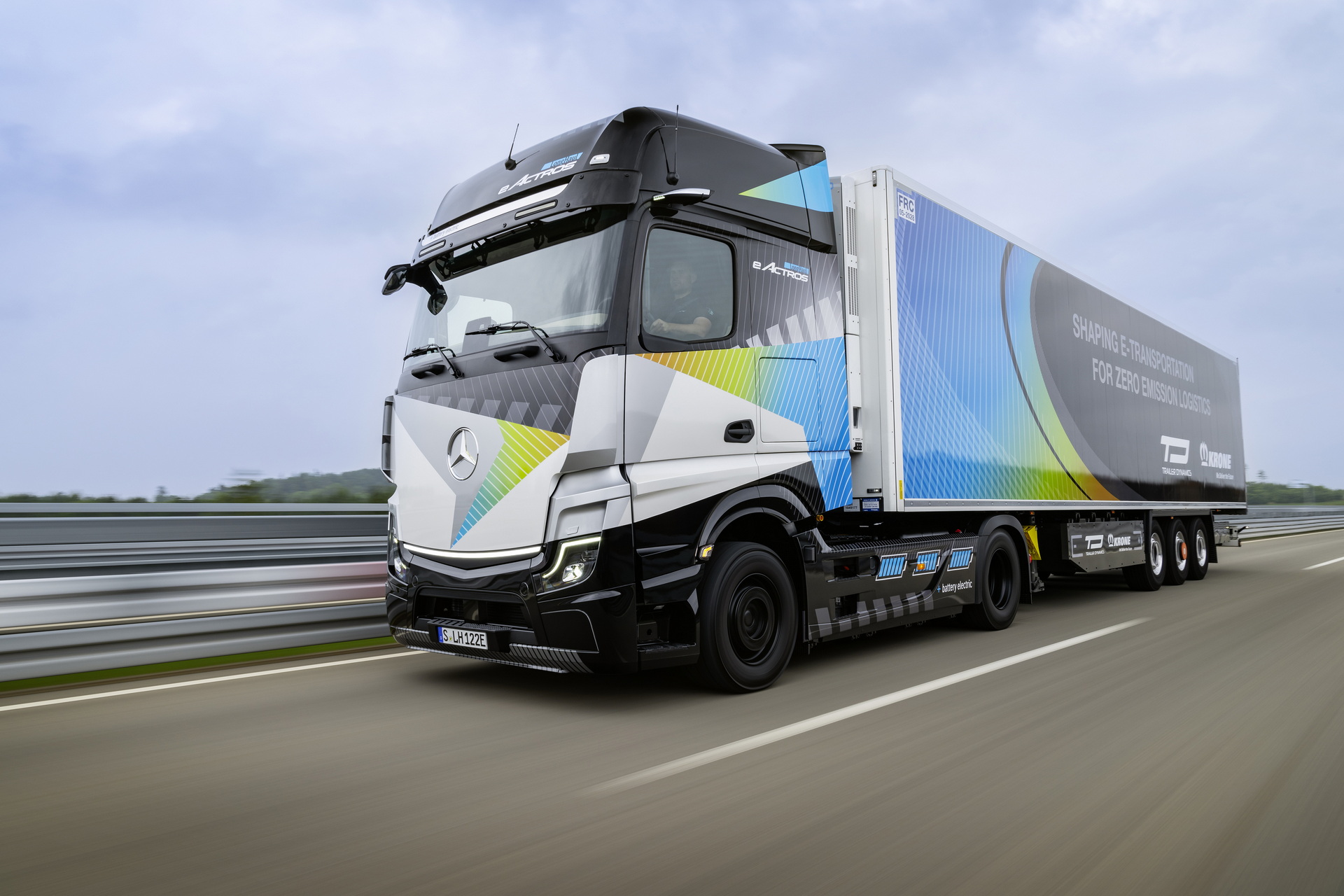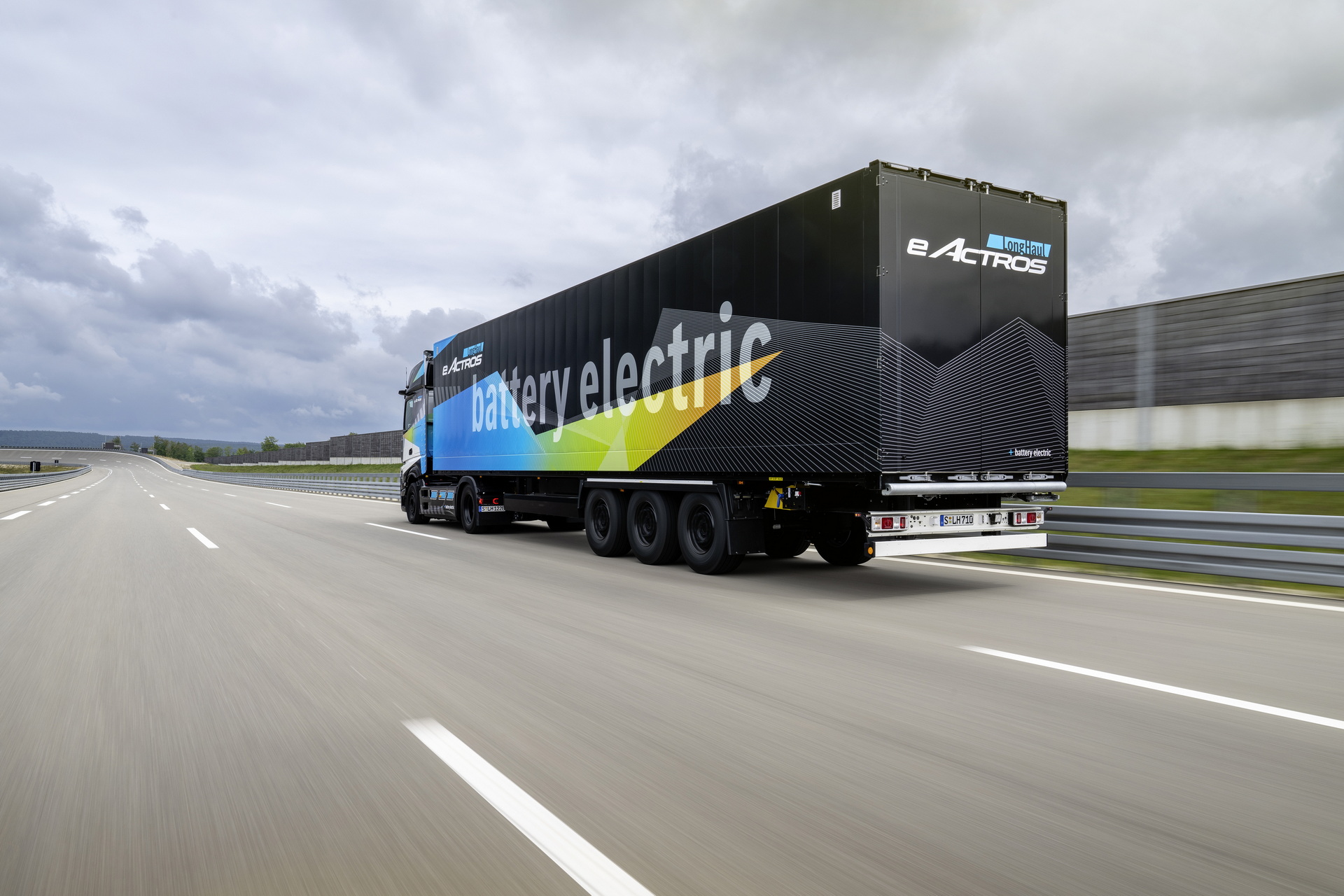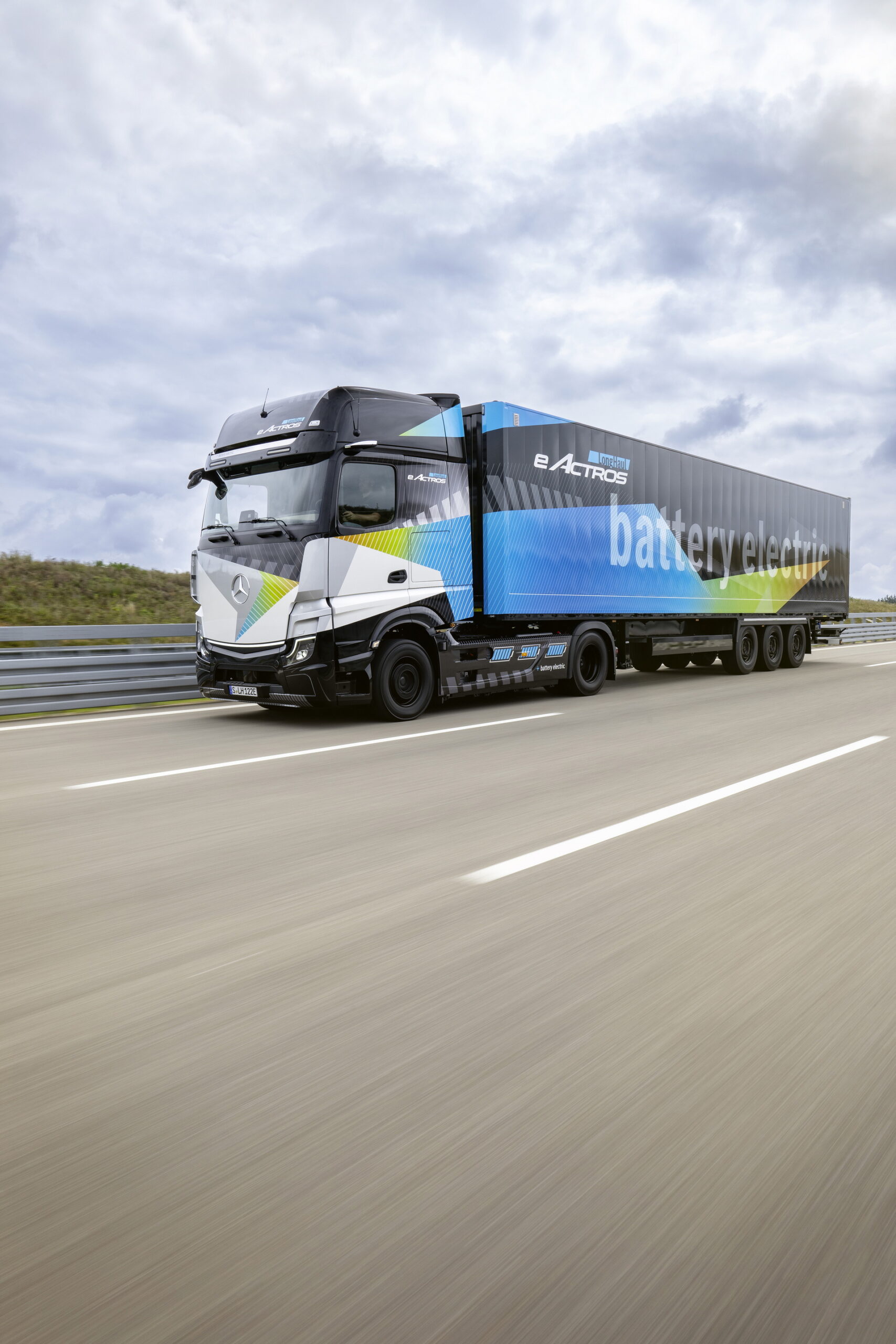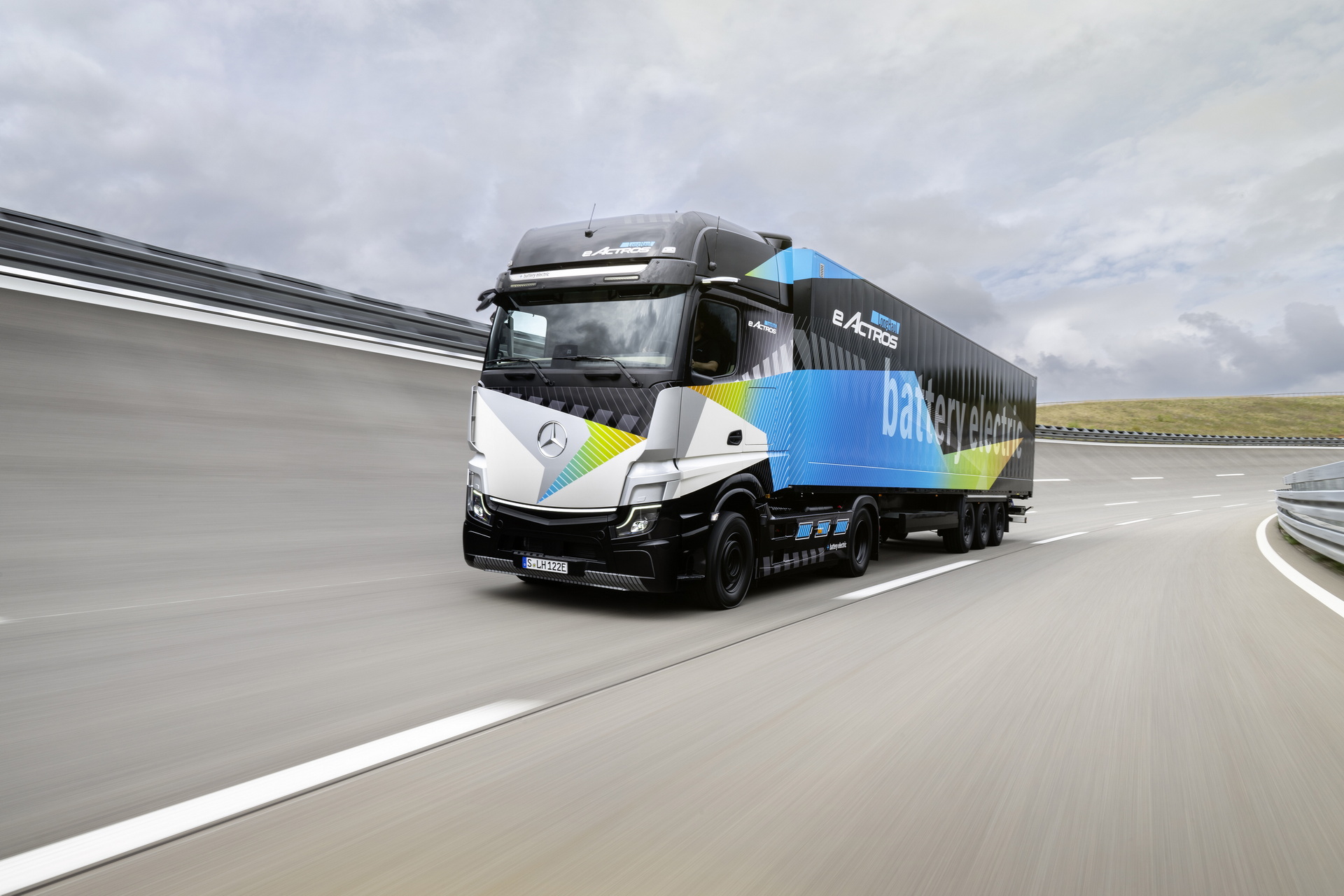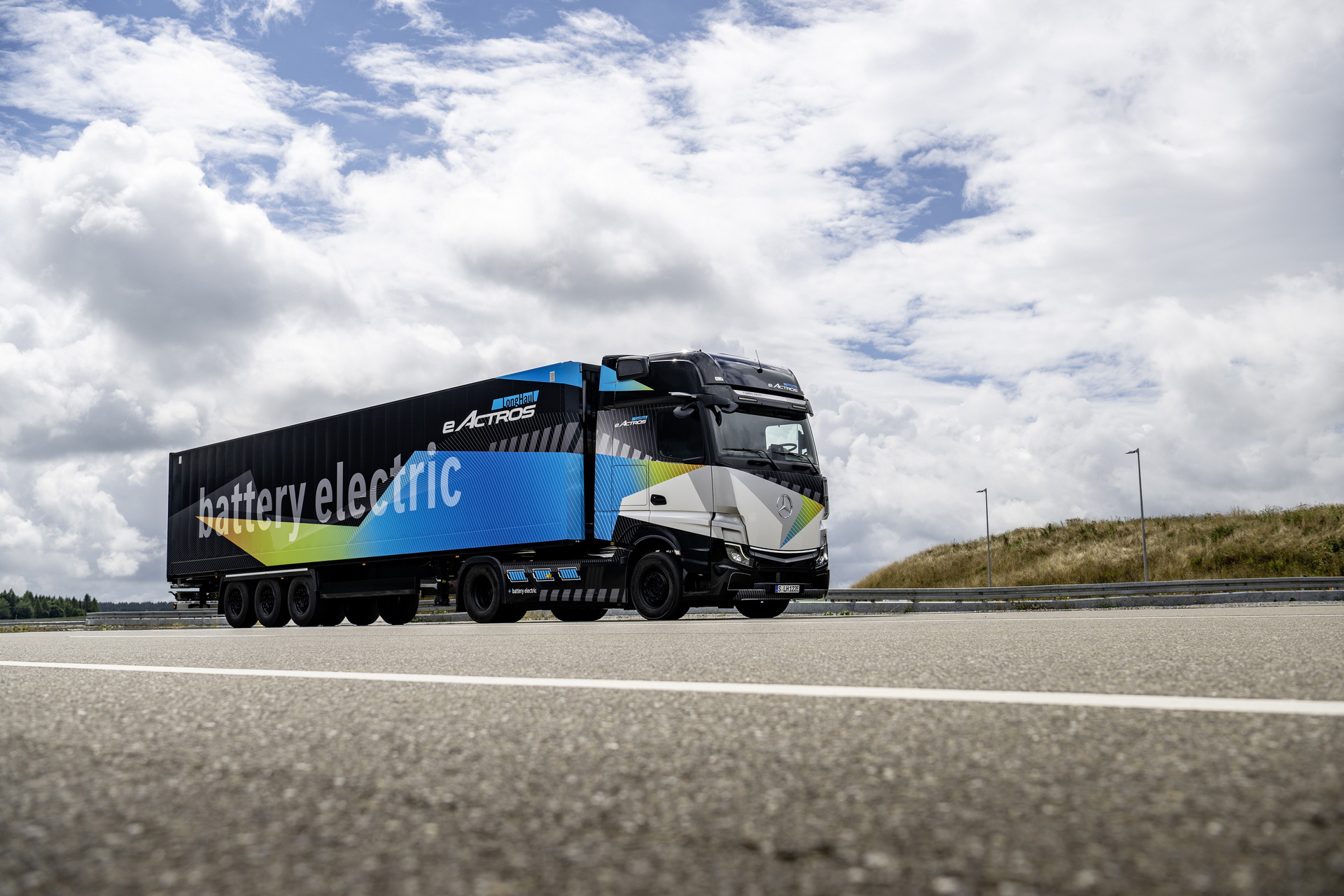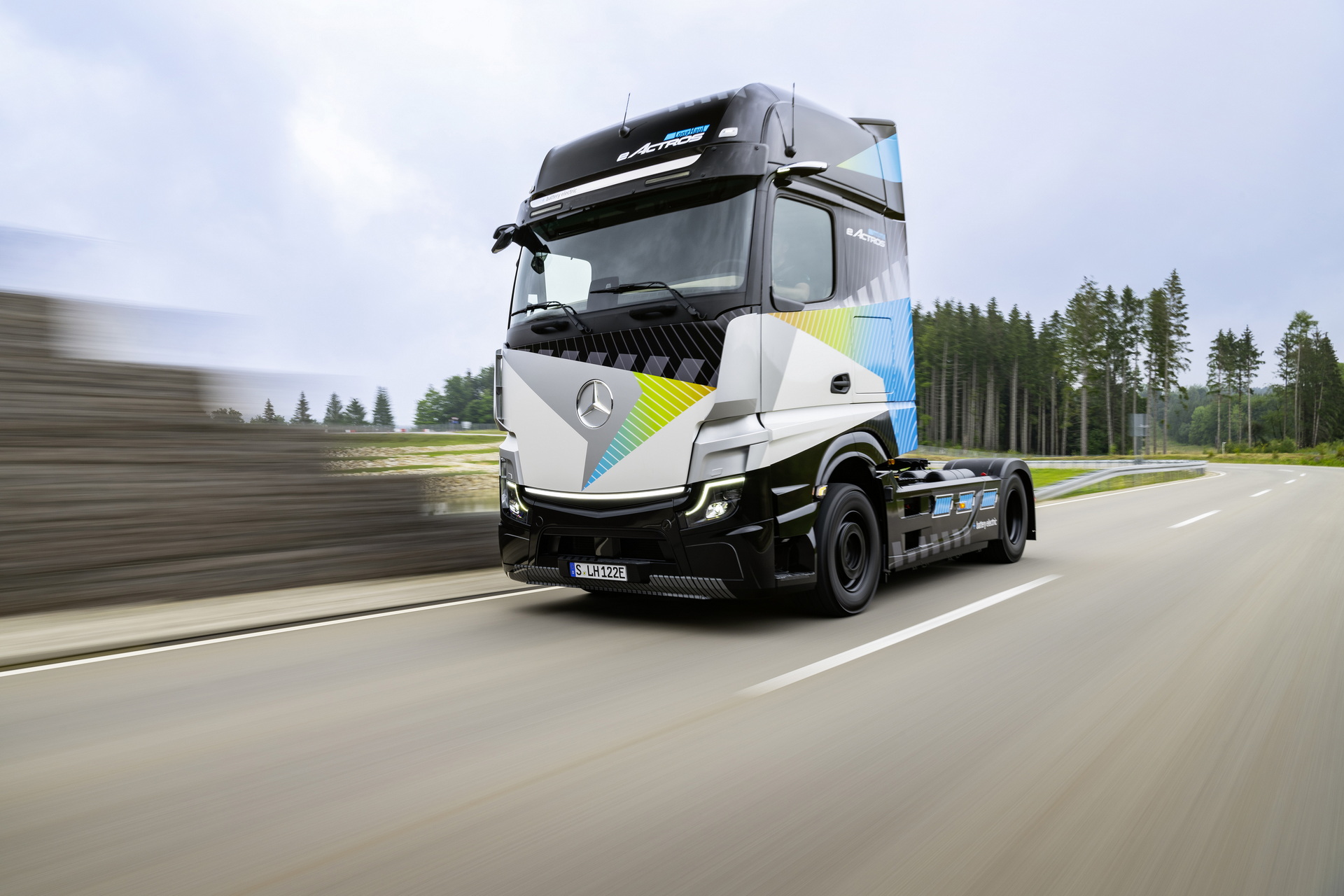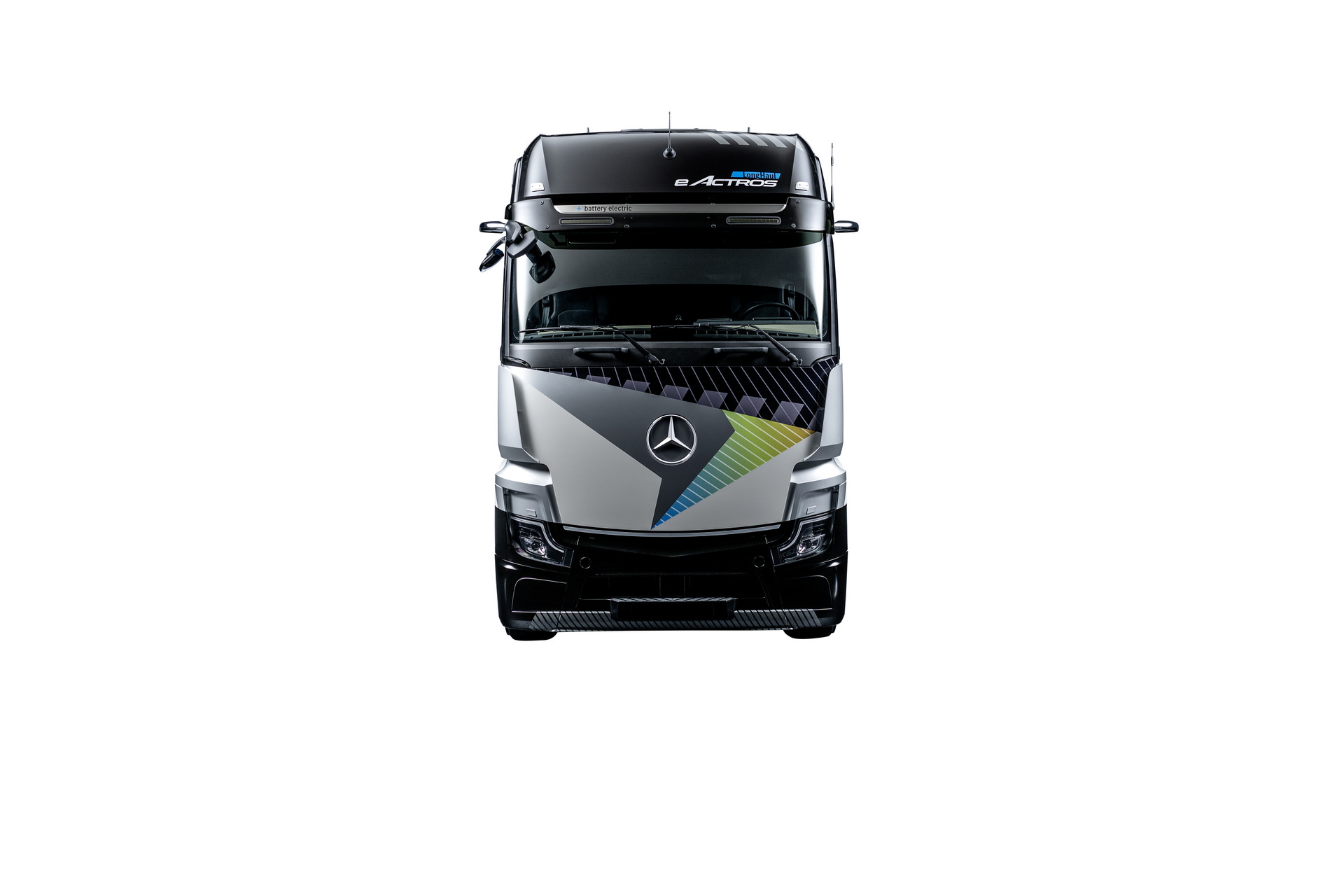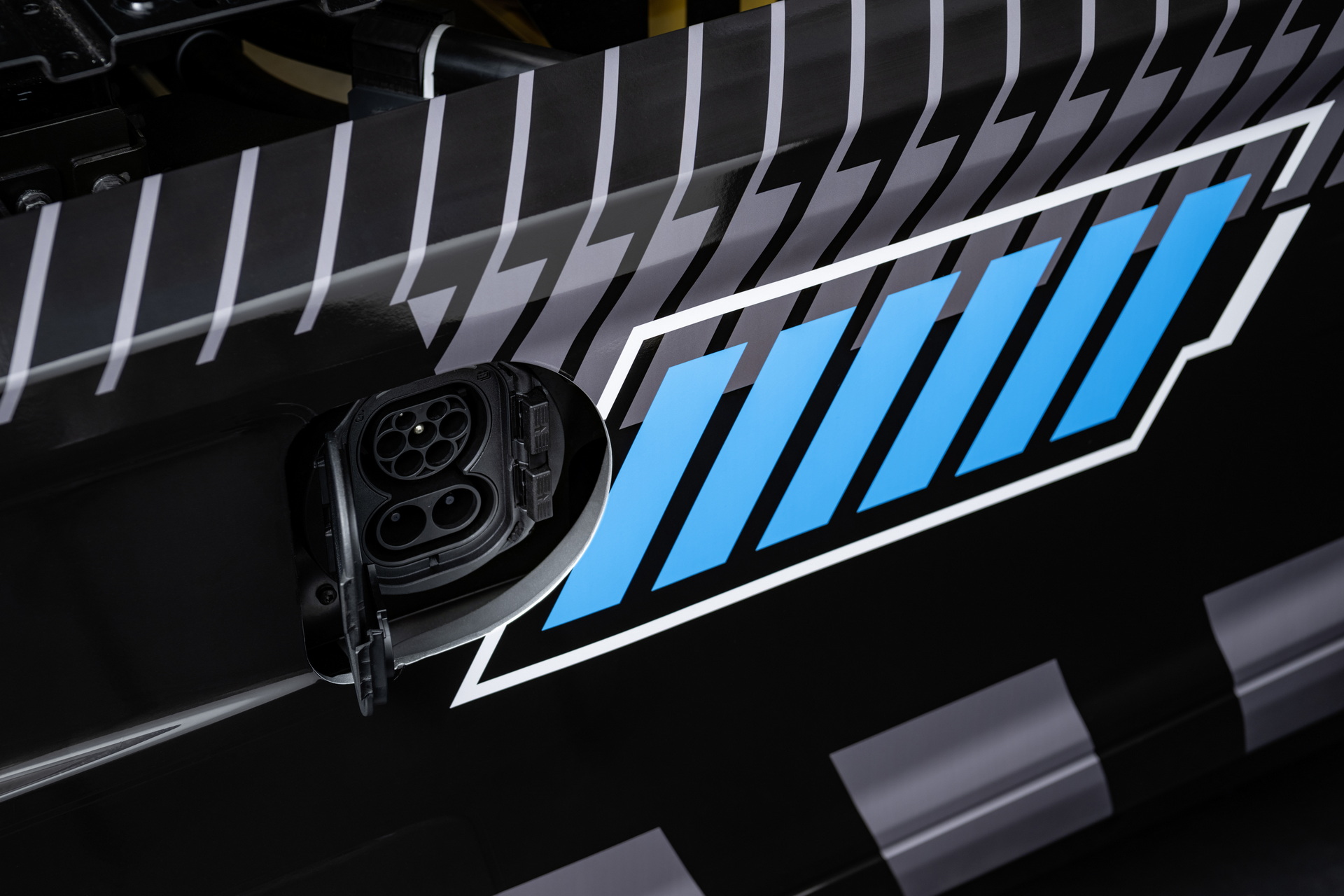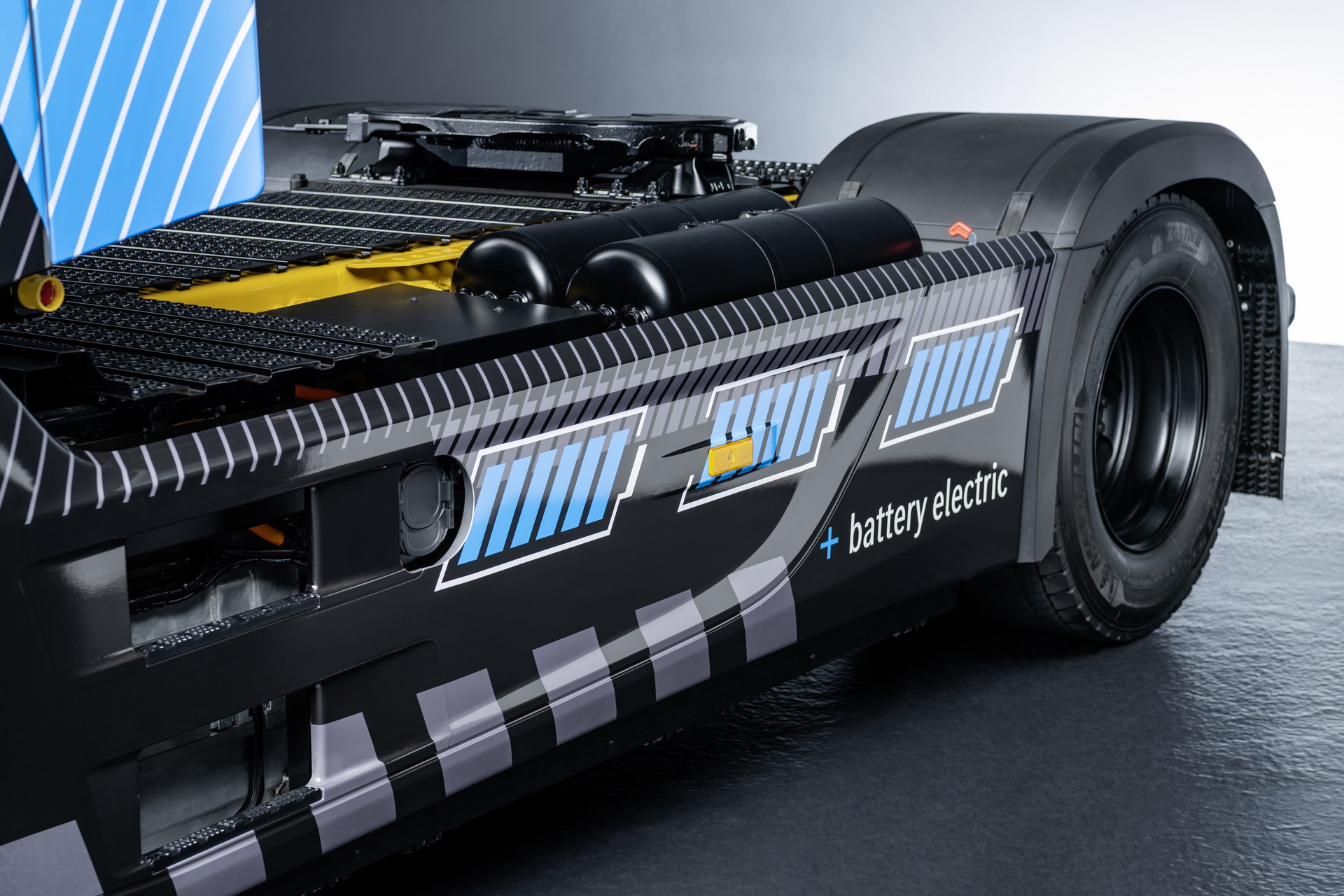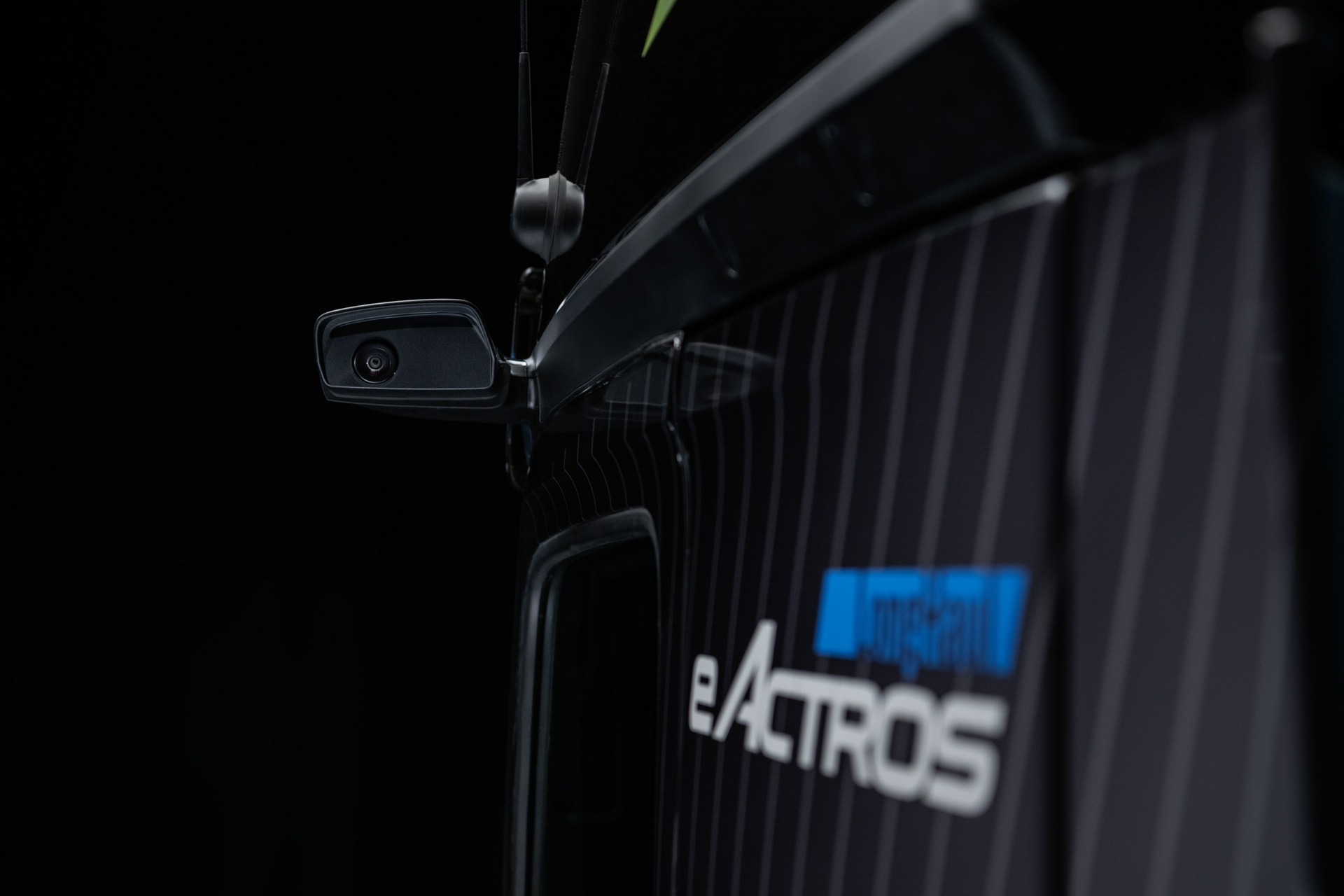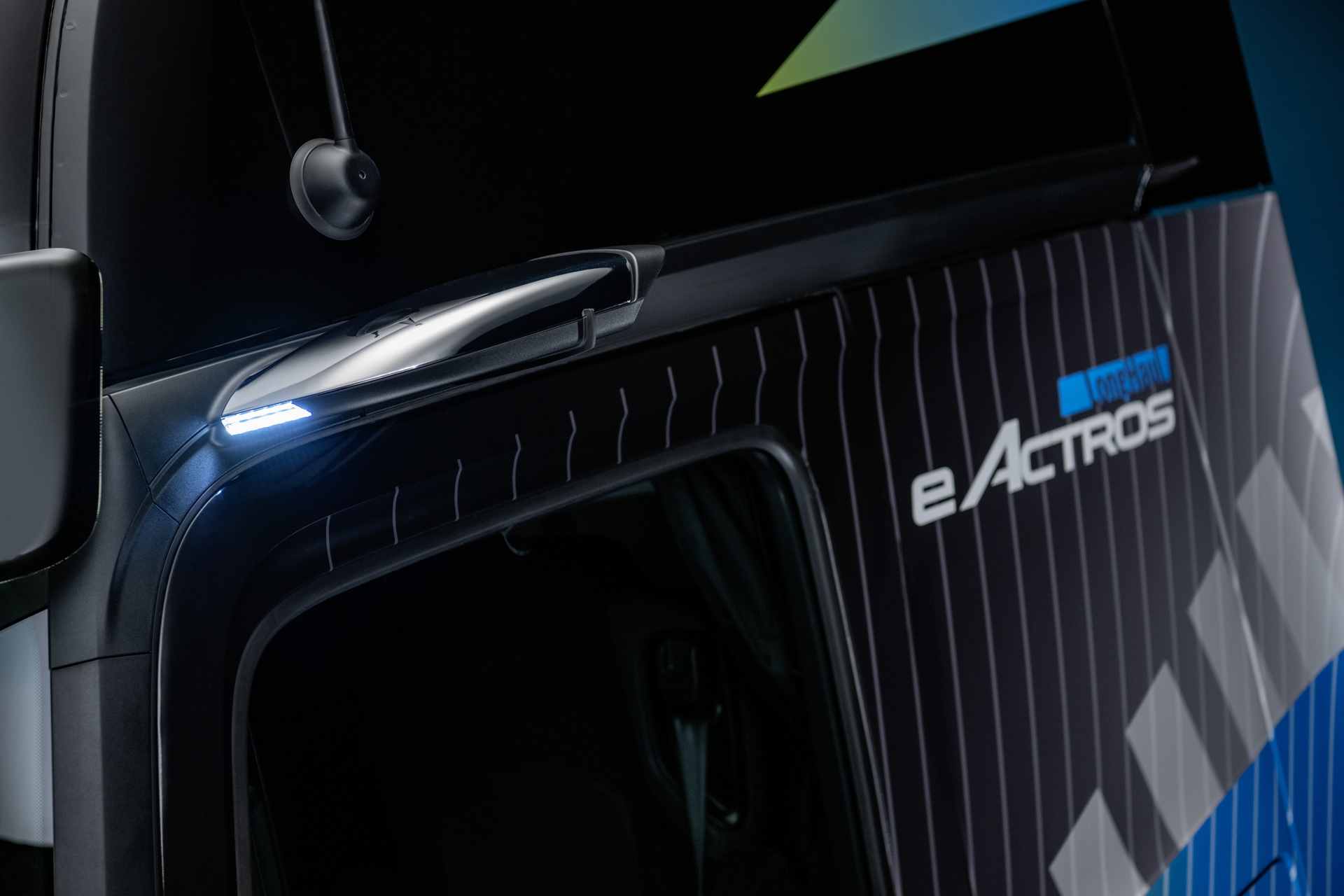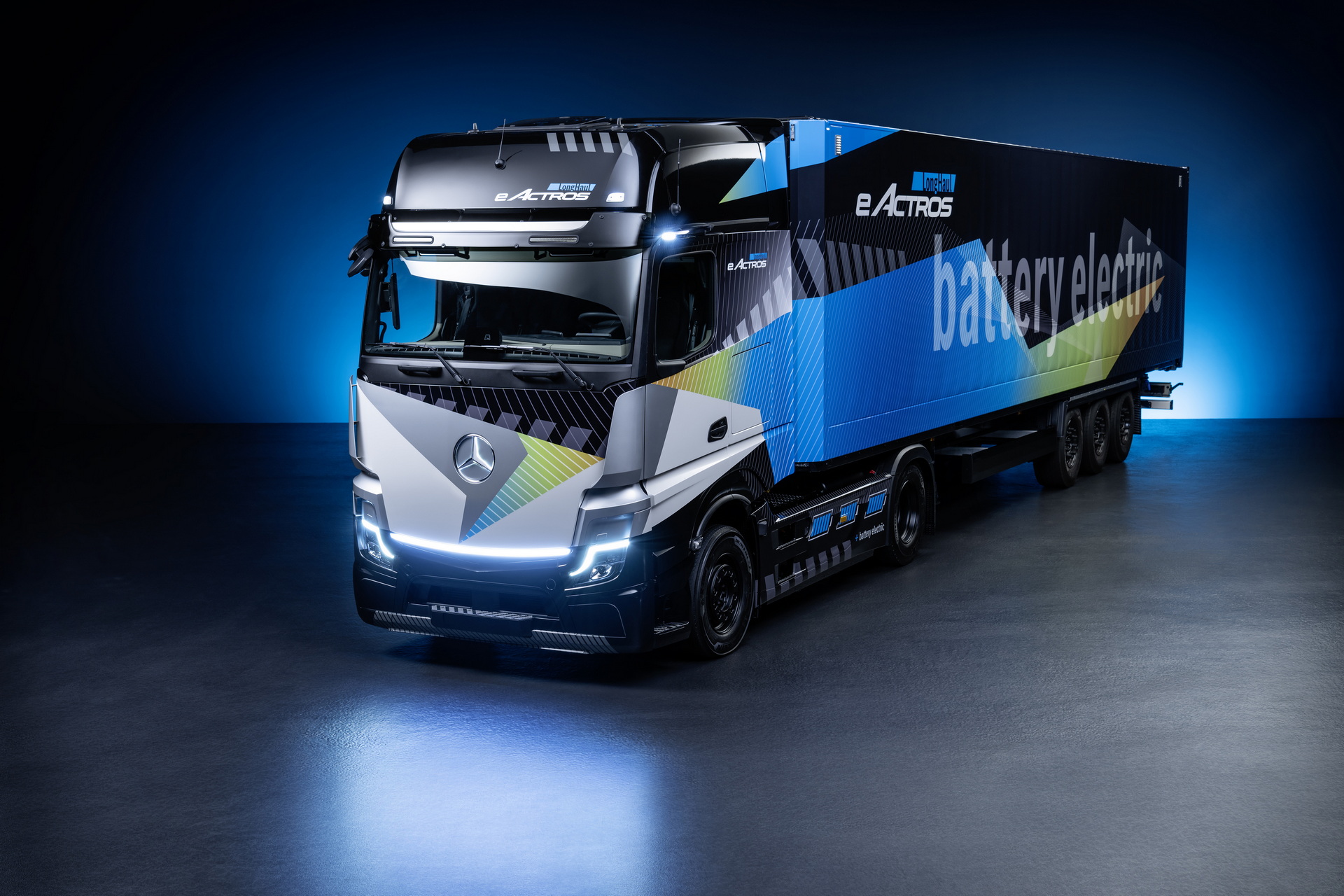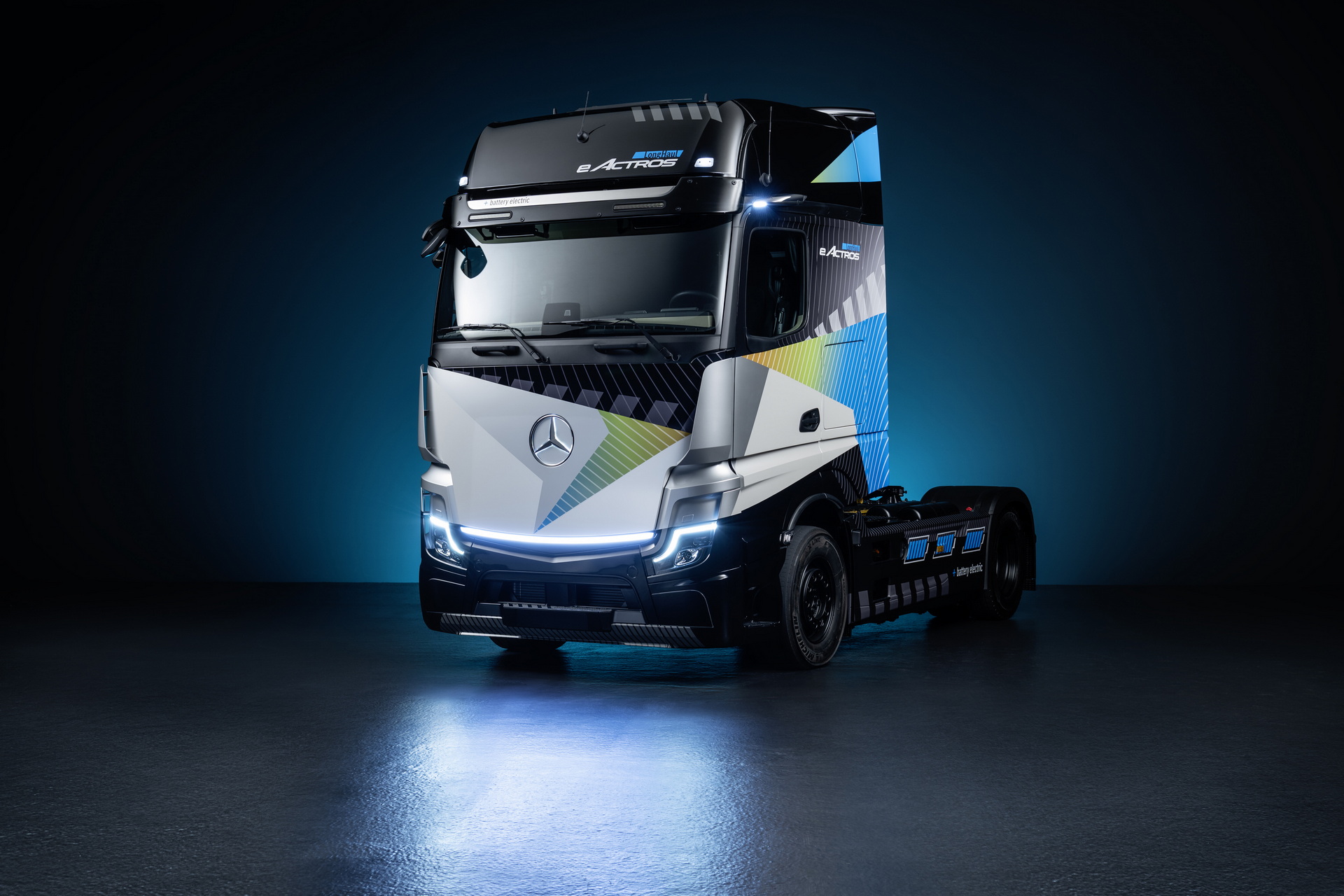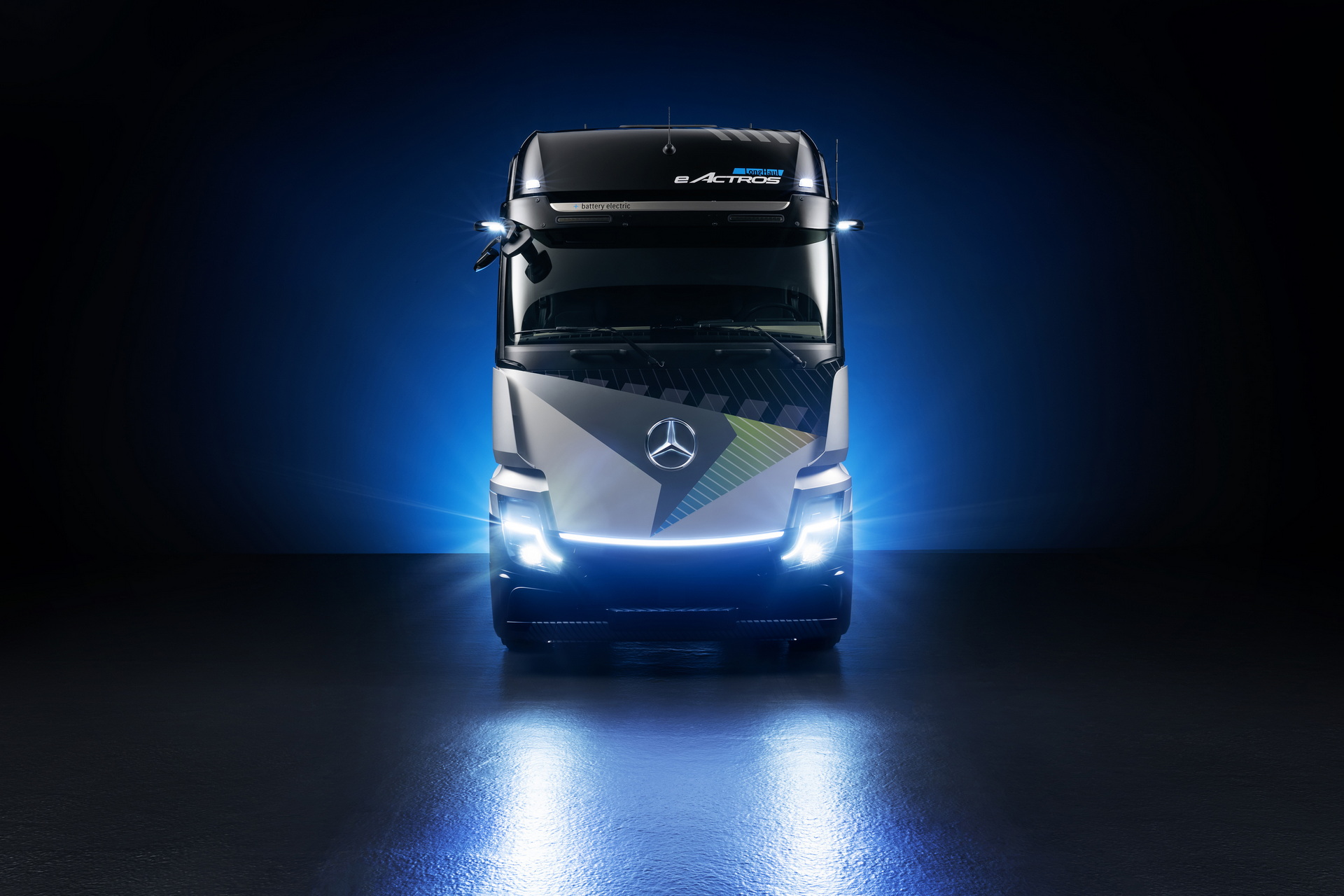First announced in 2020, Mercedes has now unveiled the eActros LongHaul prototype, a heavy-duty electric transport truck designed to go long distances, which is being shown off for the first time at IAA Transportation 2022 in Hanover, Germany.
As previously previewed, the body features contoured lines and LED light strips at the front. Mercedes says, though, that this is still a first look at what the production vehicle will be like once it goes into production.
The real important stuff, however, is the performance. With a battery capacity of up to 600 kWh, the truck will have a range of over 500 km (311 miles) per charge. Despite the large batteries, Mercedes says that drivers will be able to charge their trucks up from 20 to 80 percent in just 30 minutes thanks to special megawatt charging stations that it is testing out.
Read Also: Mercedes To Test Long Haul Electric Trucks With Help Of Amazon
Unlike a normal tractor trailer, however, the eActros doesn’t have to do it all on its own. Mercedes says that companies like Trailer Dynamics and Krone have been developing an eTrailer. With their own batteries and powered axles, these trailers could increase the range of the eActros even further. Mercedes estimates that the truck could go more than 800 km (497 miles) per charge in such a configuration.
Alternatively, Mercedes says it is also working on a rigid truck, which combines the tractor and trailer into one unit. Regardless, the batteries will have a lithium iron phosphate chemistry in order to ensure that they have a long service life and more usable energy. Indeed, the truck has been designed to last 10 years and more than 1.2 million km (745,645 miles), just like its conventional trucks.
For propulsion, the truck will use a new generation of e-axle that is capable of producing 536 hp (400 kW/544 PS) continuously. It will, however, be able to produce 805 hp (600 kW/816 PS) for short bursts.
The eActros will be the first all-electric truck made at the Mercedes-Benz Trucks Wörth plant, where it will be built alongside conventional models. Production will begin in 2024.




